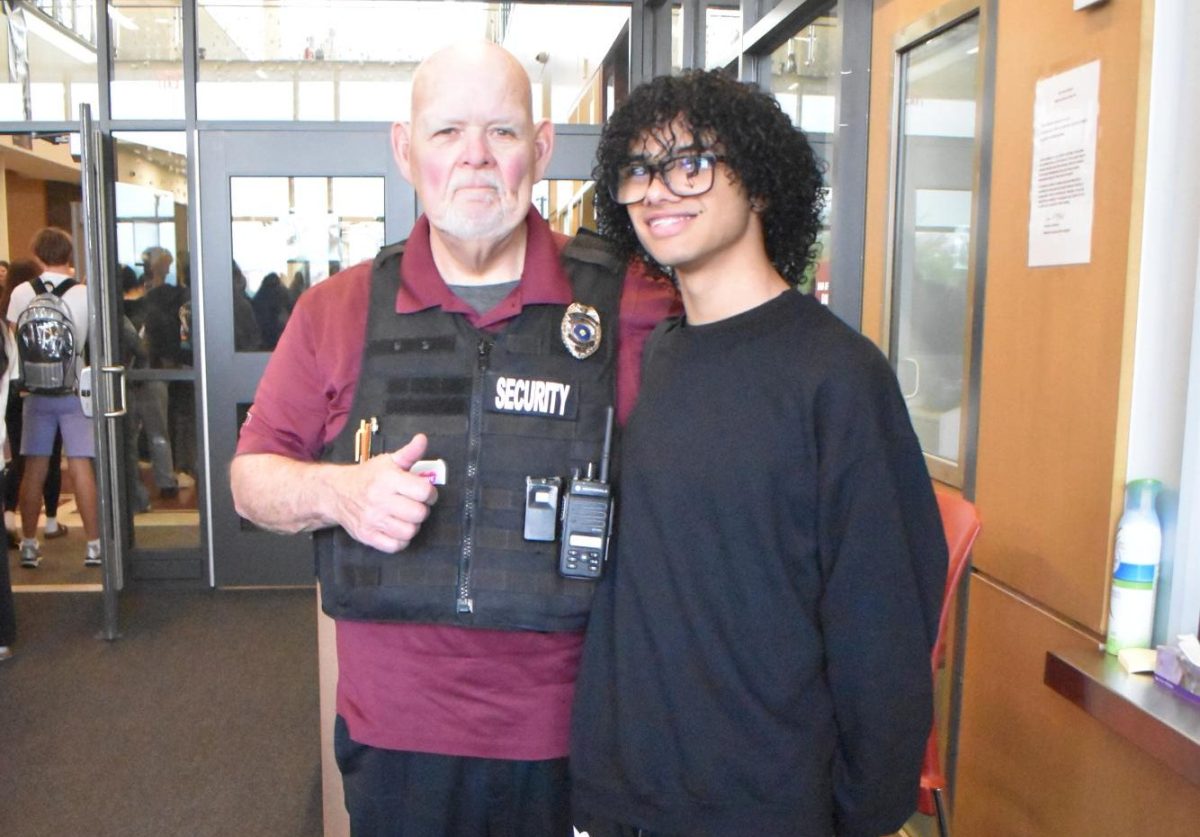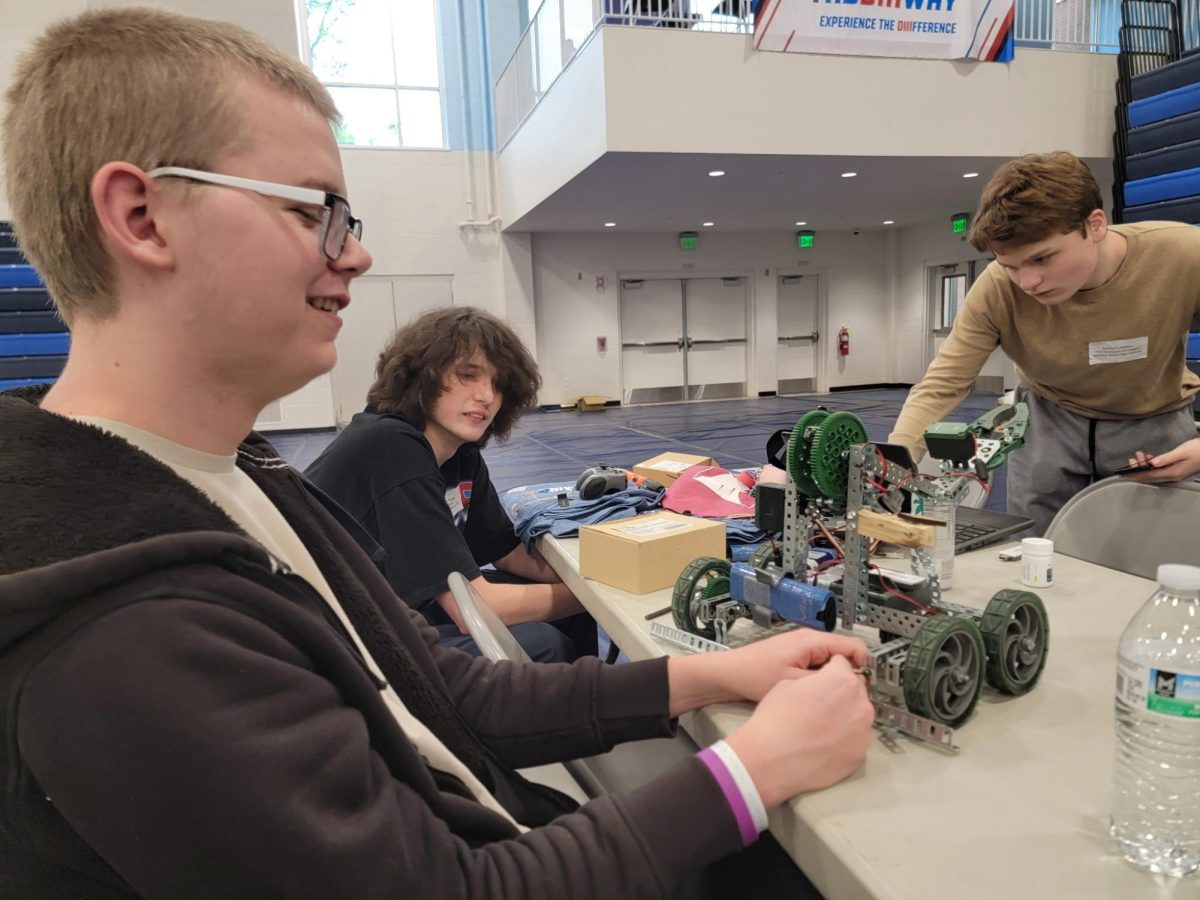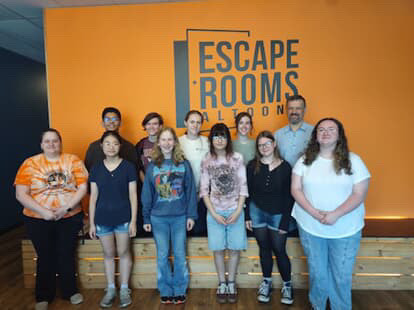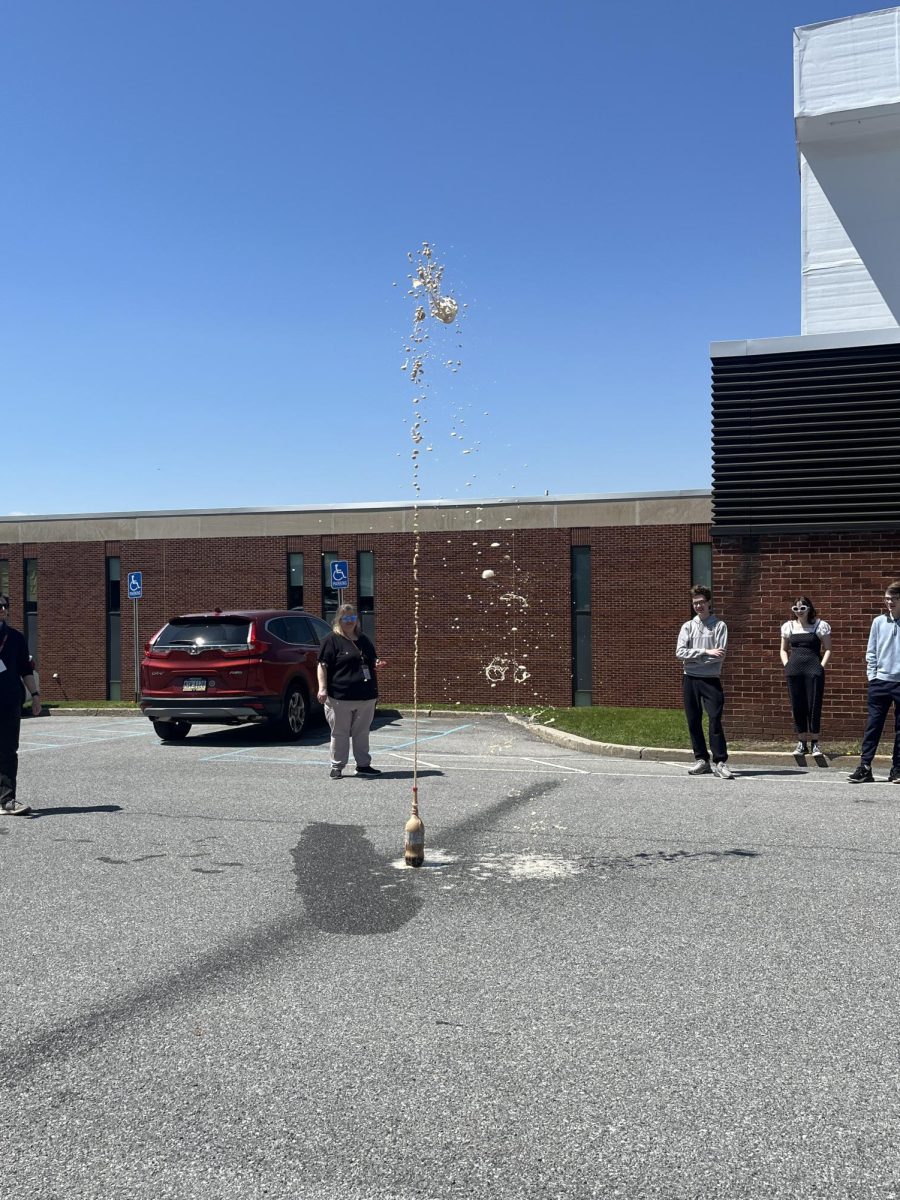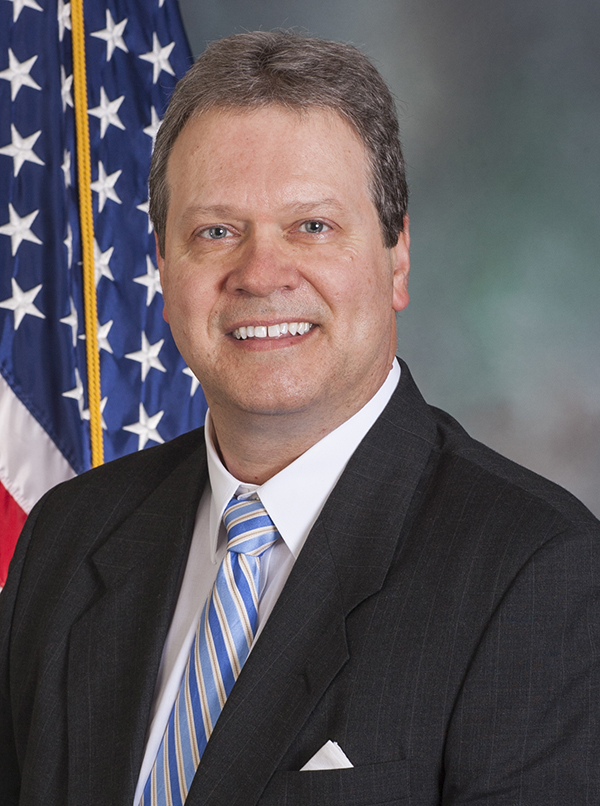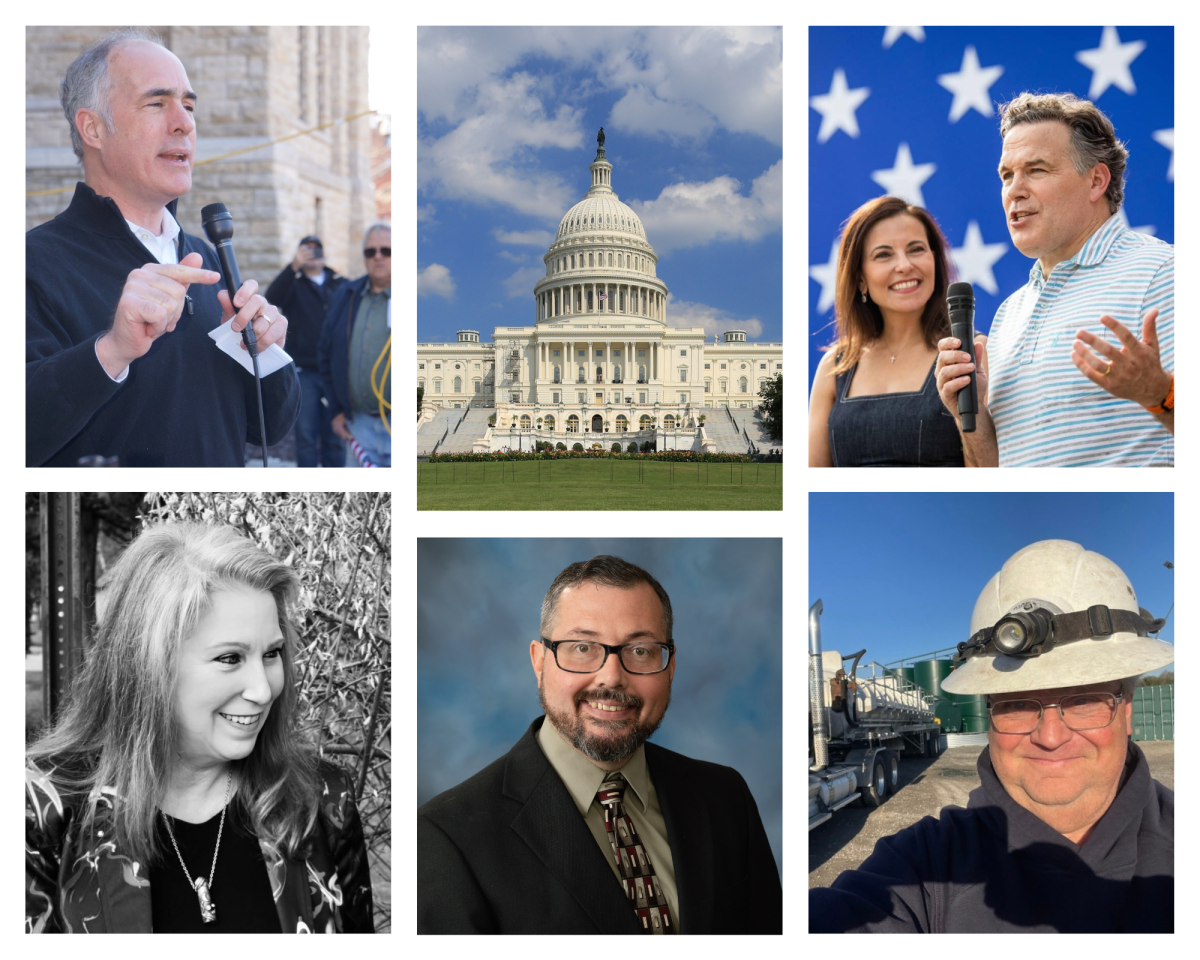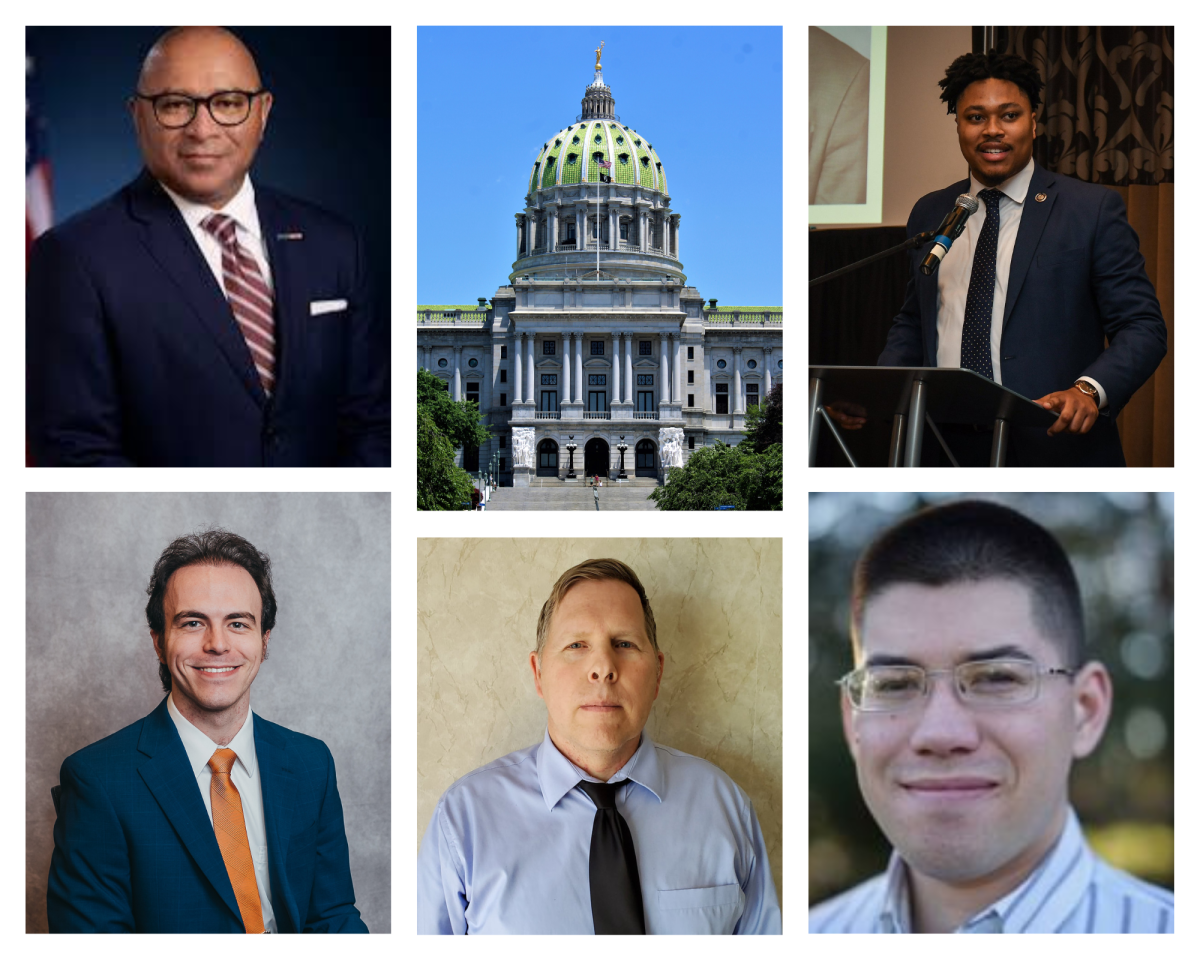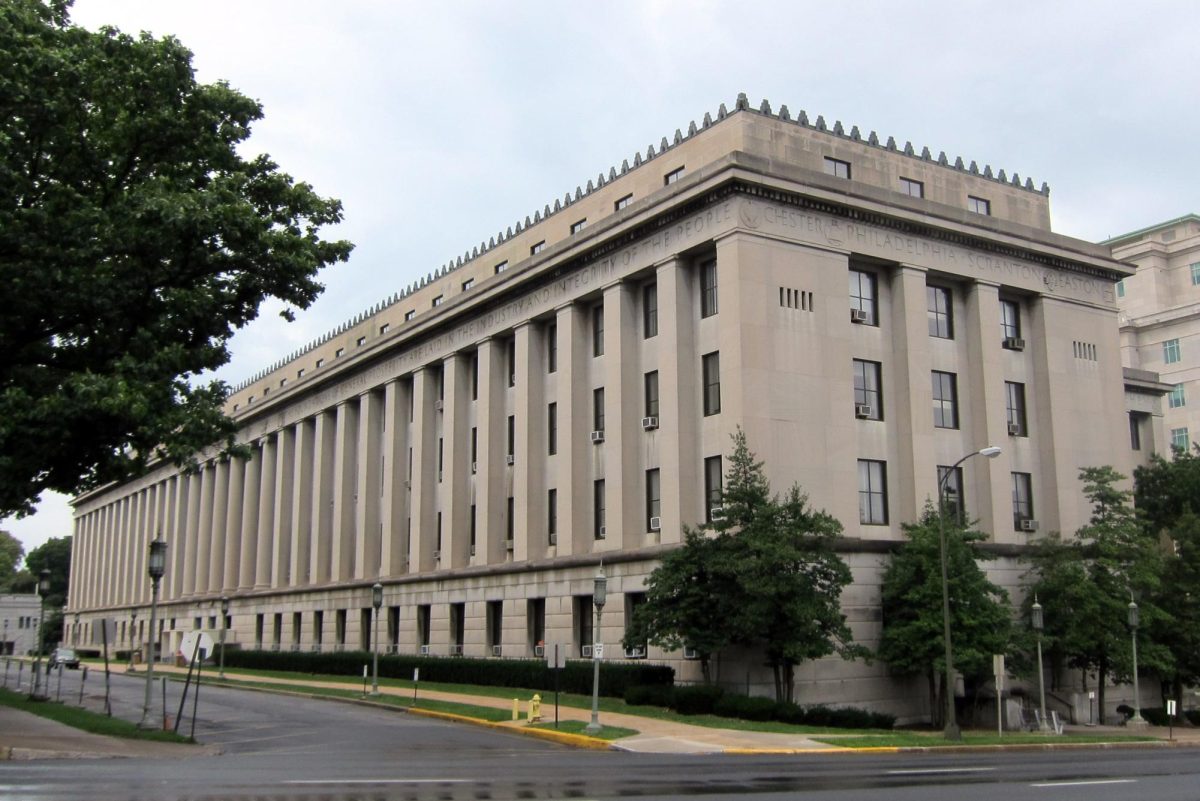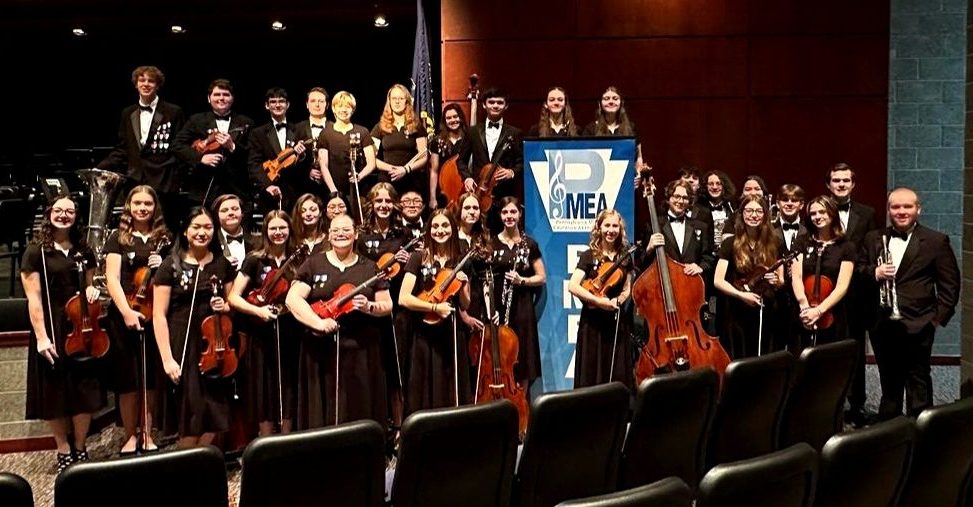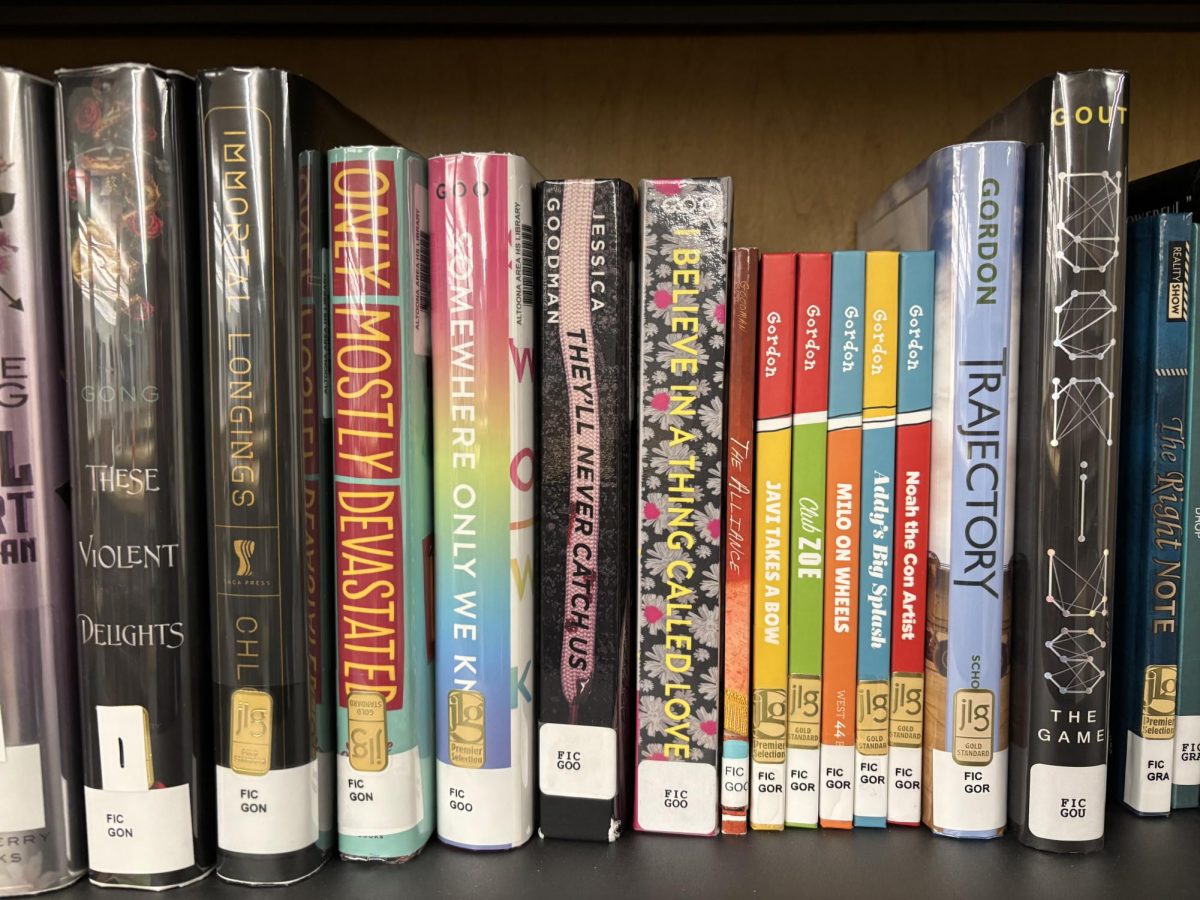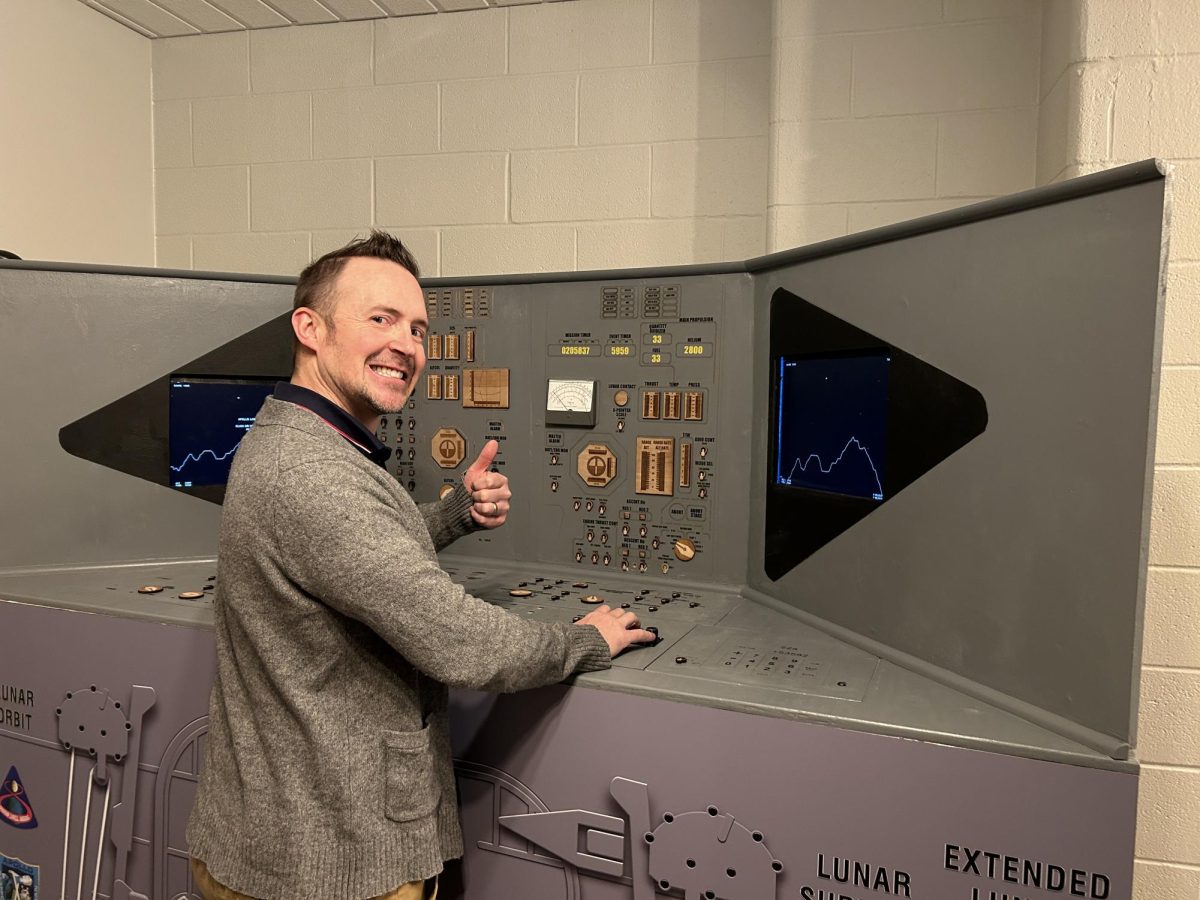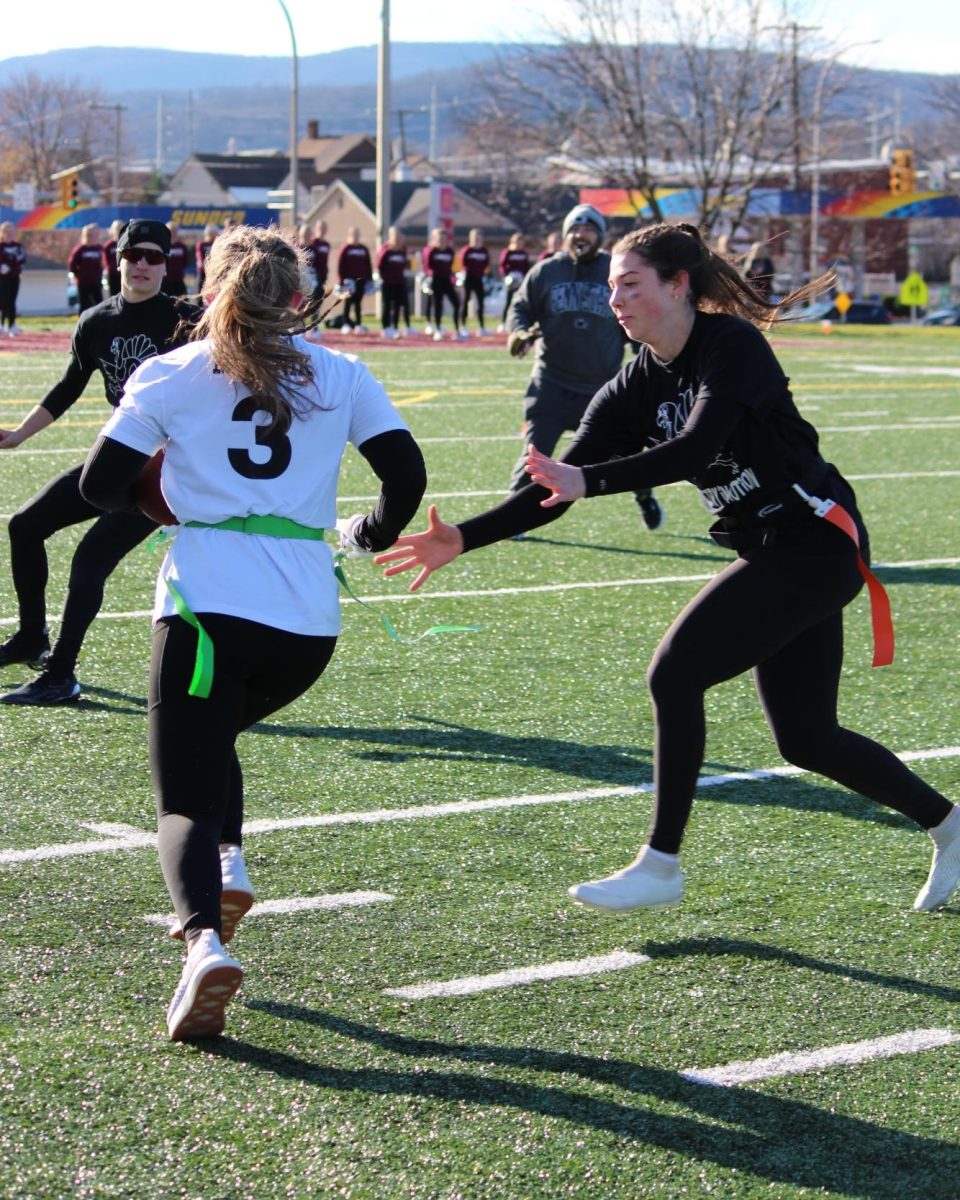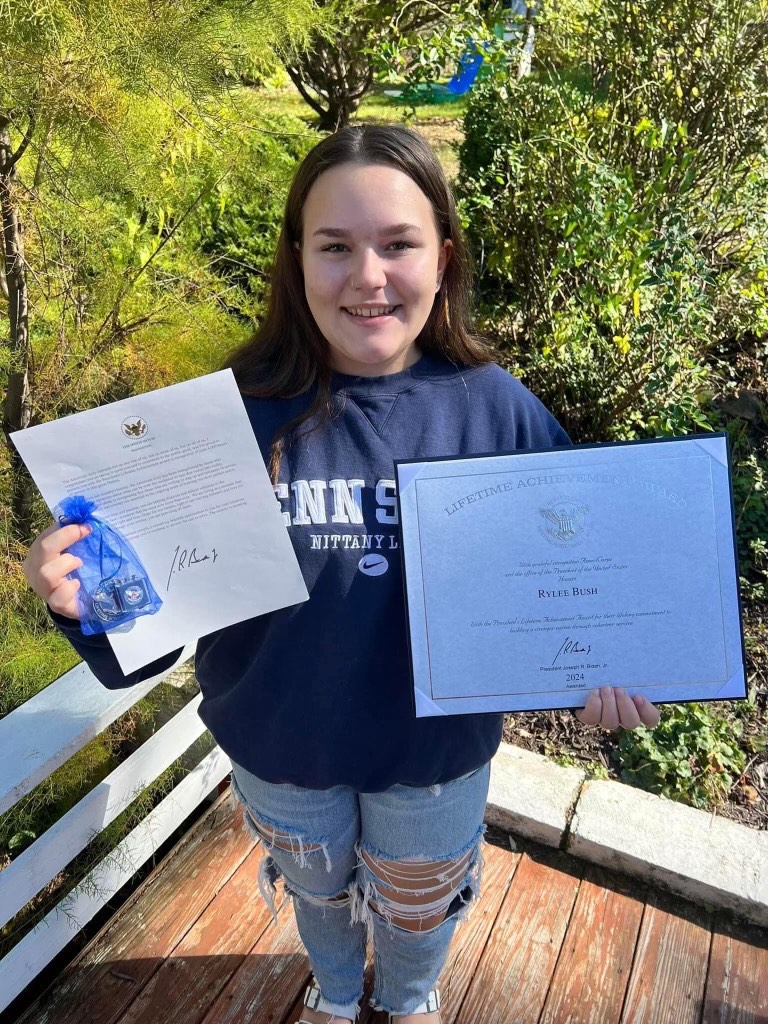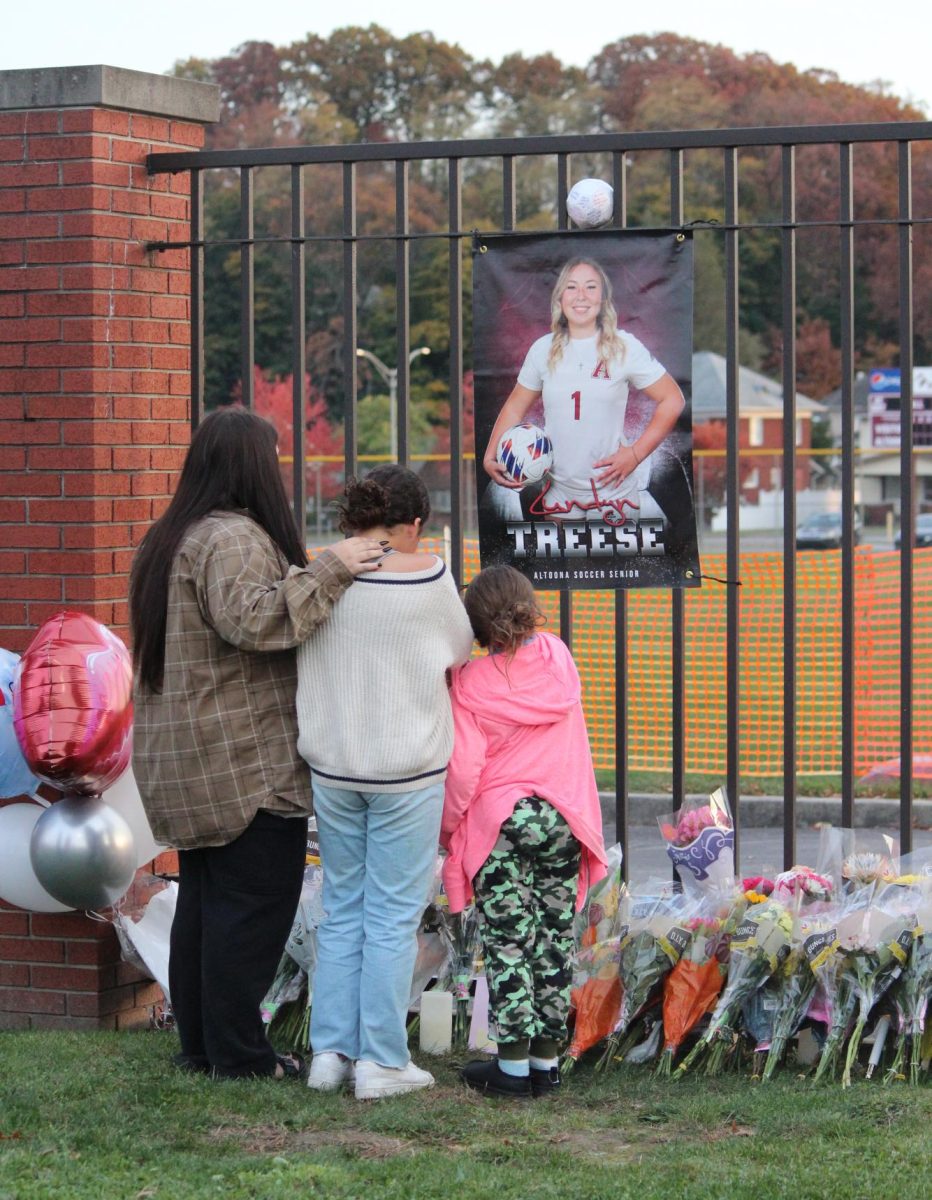An in-depth look at the Blair County ballot: Pennsylvania Attorney General Q&A
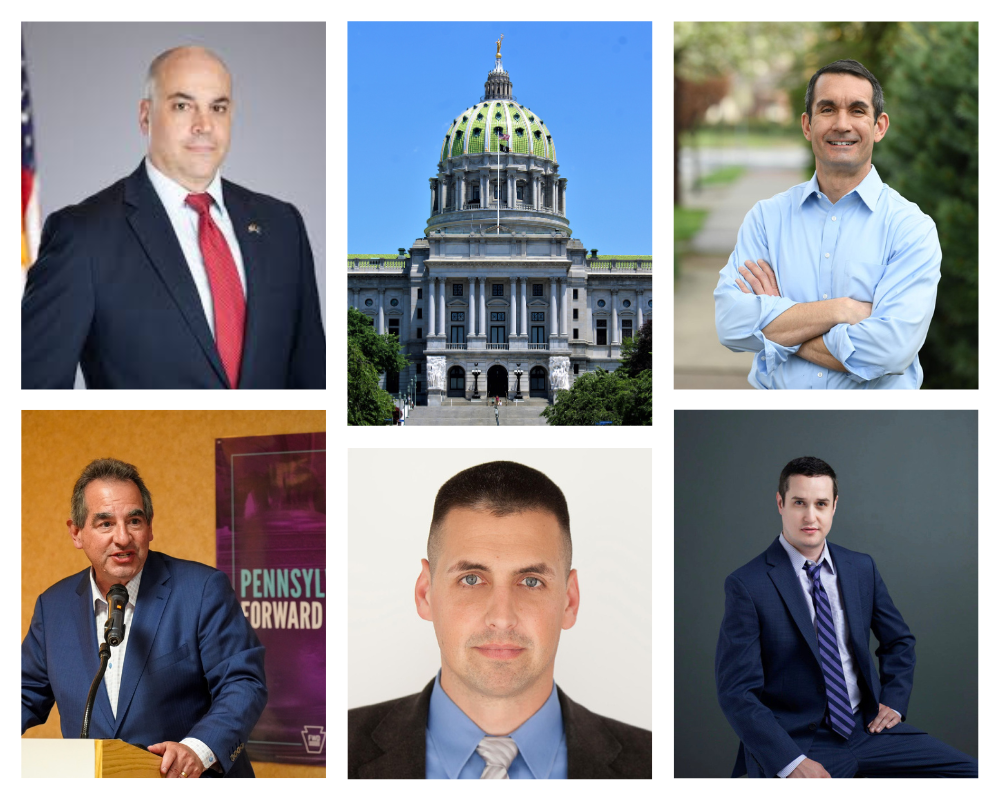
As the 2024 election approaches, candidates running for positions nationwide, statewide and locally are preparing for Tuesday, Nov. 5. One such position is the Pennsylvania Attorney General’s Office. The Pennsylvania Attorney General’s duties are “to be the Commonwealth’s chief law enforcement officer charged with the responsibility for the prosecution of organized crime and public corruption.” This year, Eugene DePasquale (Democratic Party), Dave Sunday (Republican Party), Justin Magill (Constitution Party), Eric Settle (Forward Party) and Rob Cowburn (Libertarian Party) are competing for this position. The opinions voiced by the candidates are the candidates’ own and do not reflect the beliefs of the Mountain Echo staff. Each of the candidates breaks down what they stand for in this upcoming election.
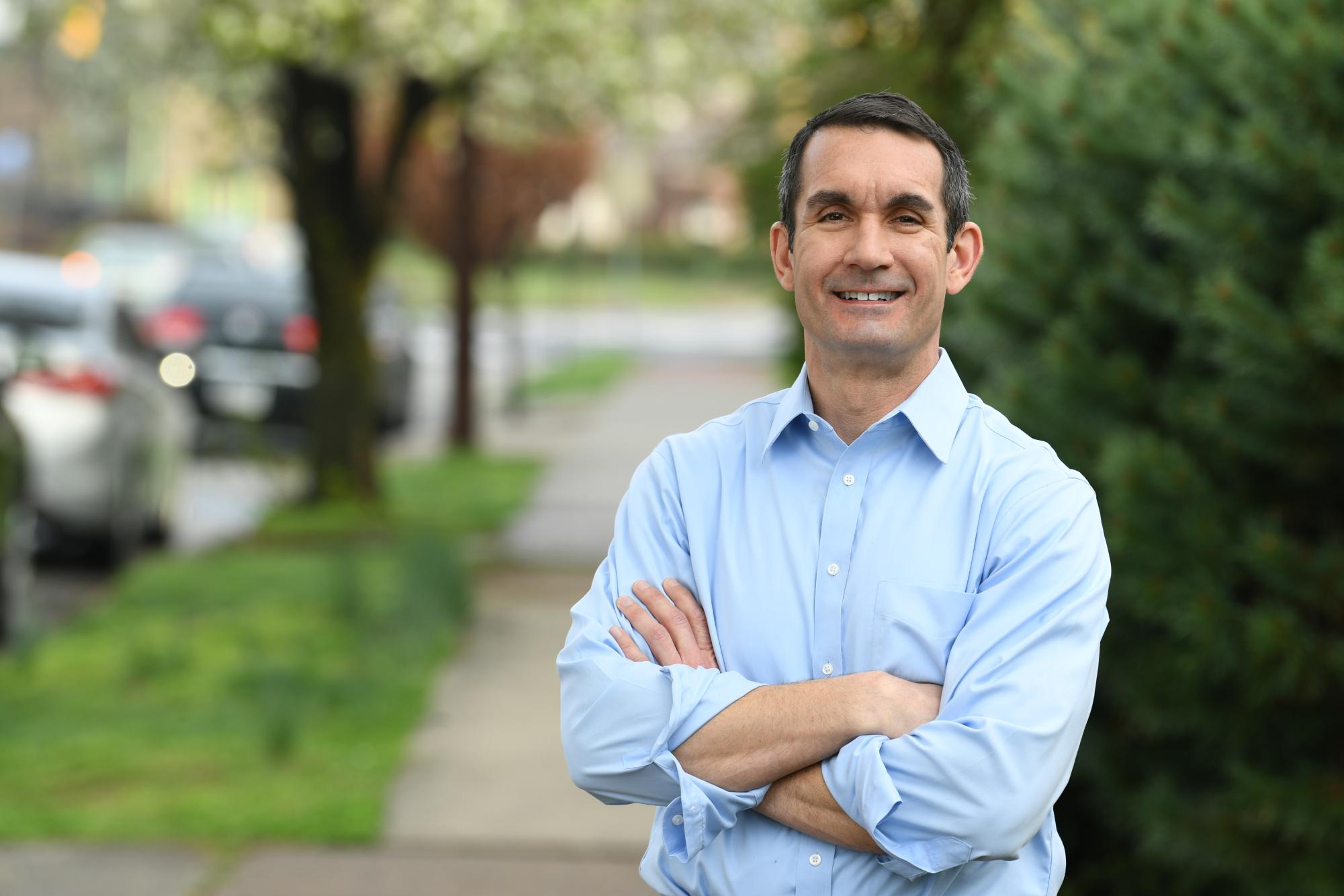
Q: Why did you decide to run for Pennsylvania Attorney General?
A: “I first decided to run for the legislature. I thought Harrisburg needed a shake up, and I guess you could say that’s part of the same reason why I’m running for Attorney General, but not necessarily to do the shaking up. I thought particularly at this moment in time, with all the partisan dividers going on, as a record of accountability, sticking up for the rights of everyone, and also some of the record of tackling tough issues, is exactly what Pennsylvania needed in an Attorney General. So I thought that’s why I would run so I could [help] the people in the state, and my background fit what I thought was what the state needed at this point.”
Q: What job did you have before running for Attorney General? How will this experience help you if you get elected?
A: “I am running my own private practice as a lawyer, and I teach at the University of Pittsburgh.”
Q: What do you, your party and your platform stand for?
A: “I feel like I am a Democrat, but as someone who’s running for Attorney General, it’s more of a unique situation where I’m running on a my background as a former Auditor General, someone with the experience of running a complicated state agency, someone who has run a wide investigation, including investigations that found over 3,000 untested rape kits, finding over 58,000 unanswered phone calls at the child abuse hotline, and also taking on the student loan debt industry in Pennsylvania. As Attorney General, my promise is to protect reproductive freedom, make sure we have safe communities and to take on all the corporate and consumer scams that are going on, the stuff that so many of us are seeing on our phones. I’ve also pledged to take on the student loan debt industry, take on big pharma for why we have higher prescription drug prices and also making sure we have more mental health [programs], whether it be younger people or older people in the world, because it has so much to do with whether we have to enhance public safety.”
Q: Why should 18-year-old high school students vote for you?
A: “First of all, I would say my daughter is 21. She’s a senior at Temple University, so I am not that far removed from at least knowing what it’s like having a daughter at that age. […] my son is 24, so I know the challenges that people going through high school go through
Following the horrific shooting at Stoneman Douglas [High School], which was […] a couple years ago. Now, I led the school safety task force, and I met with students all over Pennsylvania, whether they were in Republican, Democratic or swing areas, learning exactly what was on the minds of young people when it came to the dangerous environments in our schools. Also, the need to have more mental health, working with schools all across the state to make sure that that happens. That’s something I bring as a direct leadership on that issue, making our schools safer.
In addition to that, I’ve pledged to be tough on these student loan companies, making sure that they are not having exorbitant interest rates for those of you that are going to college, making sure that you have fair student loan rates and, for those of you that are not, making sure that we have effective job training programs for people that want to get a career in a trade. I’ve had [experience] investigating the job training programs in the state, and making sure that they are made for the jobs of the future.”
Q: You mentioned that you would like to improve mental health. How would you go about that, specifically in schools?
A: “It’s about working with all the county offices. Bringing a mental health representative into every school in the state, or at least having them available certain days of the week in every school. It’s working through that, and making sure that you have mental health parity in our insurance coverage.”
Q: I want to pivot and address a lot of issues that are important nationally, but also important to our high school. The first thing is school security, in the context of how many school shootings are going on. We actually had a shooting hoax here about two years ago where we had SWAT teams running into the school, and we didn’t know at the time that it was real. So how are you going to act on this issue?
A: “As someone that recently had two kids in high school, again, it was about four or five years ago, but also some of that happens where I teach at the University of Pittsburgh. I know that this issue is number one. We’ve got to find out exactly who does this. We’ve got to make an example of them and punish them to the fullest extent of the law. We’ve got to build partnerships with the Justice Department, the FBI, other states and Attorney Generals across the country to make sure that whoever does this is paying a very heavy price, so the word gets out never to do this again.”
Q: What about enforcement of the law concerning high school students who have a criminal record, are using drugs and are doing other things they’re not supposed to be doing?
A: “I think we’ve got to have it particularly for nonviolent offenses. If somebody commits a violent offense, that is a separate issue. If somebody commits a nonviolent offense, we’ve got to make sure that we are prioritizing treatment and that the vast majority of people that are incarcerated are essentially going to get out [of prison]. We need to make sure that we have good education and job training programs in these facilities, but particularly for young people that are nonviolent, we need to make sure that we have the proper programs in place so that they don’t do that again.”
Q: Could you expand a little bit about college debt and how you would address that as Attorney General?
A: “Some of this [addressing college debt] would be in-state, working with FEA [Federal Education Association], the Pennsylvania Higher Education Assistance agency and some of this is working with other states’ Attorney Generals across the country. It’s making sure that they are not price gouging people that need these loans, and holding them accountable to what may be a lawsuit, potentially. It is not a criminal issue, but it’s certainly, when we’re in the civil world, if they are charging high rates, we can sue them and get them to get that money back right.”
Q: Concerning education at the secondary, but also primary level, are there any other measures that you wish to take to improve that as well?
A: “The Pennsylvania Court, particularly Commonwealth Court, has passed a current education funding formula under the constitution. My job as Attorney General, I can’t tell what the legislature has to do, but I can work with them and the court system to make sure that, when the new funding formula is passed, it has constitutional merit. The goal of that meeting is to make sure that every child in Pennsylvania has an equal chance at getting a quality education.”
Q: What about energy and transportation in Pennsylvania? What measures would you take for that, if you get elected, to improve public transportation and things like that?
A: “There’s really not much the Attorney General can do on that issue about access to [public transportation], but certainly safety on it. The Attorney General can play a role in making sure that public transportation [is safe]. Not much can be done on the funding from the Attorney General, but safety on those is something the Attorney General can work with local law enforcement to make sure that people riding public transportation are safe.”
Q: What would you do specifically for that, if you were to be elected?
A: “I would work with the local District Attorneys and law enforcement all over the state, asking where they might need additional assistance from the state, whether it be state police or agents from the Attorney General’s office, and at that point what resources are needed.”
Q: What are your thoughts on abortion?
A: “I am pro-choice. I am supportive of reproductive freedom, and I’ve made it clear that I will never prosecute a woman for having an abortion, and never prosecute a doctor for performing it. My family had an ECT [Electroconvulsive therapy] pregnancy at week 10. That procedure is now illegal in five states. That saved Tracy’s [my wife’s] life and preserved our ability to have kids. I never want the government to interfere with that decision. I will not only protect them in the state of Pennsylvania, but for any woman coming from one of those other states. If they come to Pennsylvania, I’ll protect it for them as well.”
Q: Are you pro-choice in every scenario, or are there some exceptions?
A: “Regardless of my personal views, I believe the decision should always be between the woman and her doctor.”
Q: What about taxes?
A: “That’s one where the Attorney General really has practically no role other than making sure that nobody is cheating with your tax dollars.”
Q: What about gender identity and the LGBTQ+ community? Could you address that and how it ties into the Attorney General position?
A: “The role that, as Attorney General, I would play there then is making sure that nobody’s getting bullied in our schools, working with school administrators, parents and certainly student groups. People have the right to be who they are and live their lives and however they identify, making sure that they have access to quality education. Nobody should have to deal with getting bullied. As Attorney General, I can certainly be helpful in that area.”
Q: What are your thoughts on the First and Second Amendments?
A: “I am obviously a supporter of free speech, and, as Attorney General, I would certainly defend that, whether that speech is liberal, conservative—that’s not my call. I want to make sure that people have the right to a voice. To come to the Second Amendment, we have strong Second Amendment protections in the state and obviously federal, and I understand that and appreciate that, but I also believe that we should have universal background checks to make sure that criminals aren’t buying these guns. They also make sure that people have a mental health issue, that we pass the Red Flag Law that takes away their rights and access temporarily so that they don’t harm themselves or someone else. Two-thirds of our firearm deaths in Pennsylvania are a result of suicide. I believe Red Flag laws can help put a dent in that.”
Q: What about the environment, climate change and things like that?
A: “I certainly believe climate change is real, and we as a state in the country have to do more to address it. As Attorney General, what I mostly get to do is enforce our current environmental laws. It’s a state’s constitutional right to have access to clean water. I get to hold companies accountable.”
Q: What about measures for the economy and to curb inflation?
A: “This is an area where you actually can work with partnerships with the state Attorney Generals, and take on some of these corporate crooks that are doing intentional price gouging, whether it be to gas pumps or the grocery store. You have the ability to conduct investigations to find out who is intentionally driving up these prices just for profit, and then we get to sue them in court.”
Q: Could you expand on the measures that you would like to see for high schoolers after high school, whether they go on to college, any other postsecondary education or enter the job force?
A: “My job would be to make sure that you have as many [opportunities] as possible for most people that are going on to secondary or postsecondary education, college or beyond. Certainly if not, making sure that you’ve got access to good quality training and beyond that; making sure that if you want to join a union, that you have the right to join that union; making sure that, if you are an employee of the company, make sure that company pays you as an employee and making sure that nobody has their wages stolen. Wage theft is a big issue in Pennsylvania. As Attorney General, I can crack down and make sure that workers get [their wages].”
Q: If you do get elected into office, what is the first thing that you’re going to address?
A: “There’s three top priorities: making sure we have safe communities, making sure we’re protecting reproductive freedom access and also taking on some of these corporate schemes that are raising our prices.”
Q: How would you accomplish that [having safe communities and corporate price gouging]?
A: “Safe streets, working with local prosecutors across state, working on finding out where the hotspots are and where I need to deploy more agents and making sure that anybody that harms another person gets punished to the full extent of the law.
When it comes to reproductive freedom, make sure that my office is fully prepared to protect the woman’s right to an abortion, making sure that all the hospitals in the state know what they are allowed to do, and also making sure that any woman that wants to come here knows that they have the legal protections of the state.
Certainly, when it comes to the corporate price gouging, in partnering with other states’ Attorney Generals across the country on potentially bringing these people into court.”
Q: What about access to healthcare?
A: “I had a brother who had muscular dystrophy, and we had no health insurance as a kid. He passed away from muscular dystrophy. We had to take out loans to pay for the funeral, and my dad even came to that funeral in shackles because he was incarcerated at the time. The right to healthcare is critical.
Defending the Affordable Care Act is something that we certainly do, and making sure that we’re holding insurance companies accountable and making sure that we’re not losing access to our rural hospitals. I know rural hospitals [struggle when] one healthcare giant has too much power, and we’re trying to break those up where possible.”
Q: Are you going to enforce any measures that are going to help the economy recover from post-COVID-19 effects?
A: “The biggest thing I could do is obviously take up the price gouging. That’s something I would specifically do.
When it comes to spending policy, that’s up to the legislature and the governor, but holding the price gouging accountable is something I can certainly do as Attorney General.”
Q: What about immigration and the border? What are your thoughts on that?
A: “I do believe we need to have a strong border. I do believe it needs to be secured. I think as Pennsylvania Attorney General, there’s obviously not much I can do on that, but you can advocate for a secure border.”
Q: As Attorney General, what would you do about some of the housing issues?
A: “You can enforce two things: make sure that the Landlord Tenant Act is protected or enforced, so it isn’t being unfairly taken advantage of. There are hedge funds that are buying up neighborhoods in Pennsylvania and across the country, and working with other states’ Attorney Generals to block those from them having monopolistic power over particular neighborhoods and jacking up the prices and forcing people or forcing people out of neighborhoods.”
Q: If you do get the position, how are you going to balance federal and state power with policies you’re going to enforce?
A: “My job would be to defend Pennsylvania law and protect Pennsylvania.”
Q: Can you think of anything else that you’re going to implement if you get elected that would help high school and college students? What about people that are my age?
A: “The other part would be making sure that we have safe campuses across the state of Pennsylvania.”
Q: How would you do that?
A: “It’s to enforce Title Nine and to make sure that the schools are doing everything, following along and making sure that the campuses are safe. In partnership with the campuses, making sure they have the tools they need to protect their students.”
Q: Is there anything specific about the Attorney General position that is really important to you personally?
A: “It’s a passion of mine to make sure that our state, which is great, becomes even greater, and so having the ability to protect Pennsylvania’s work, making sure we have safer streets, personal freedom, freedom to think, freedom to read what we want to read, consumers—using the role in a proactive way, I think, makes our state even greater.”
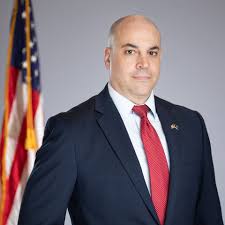
Unable to be reached for comment.
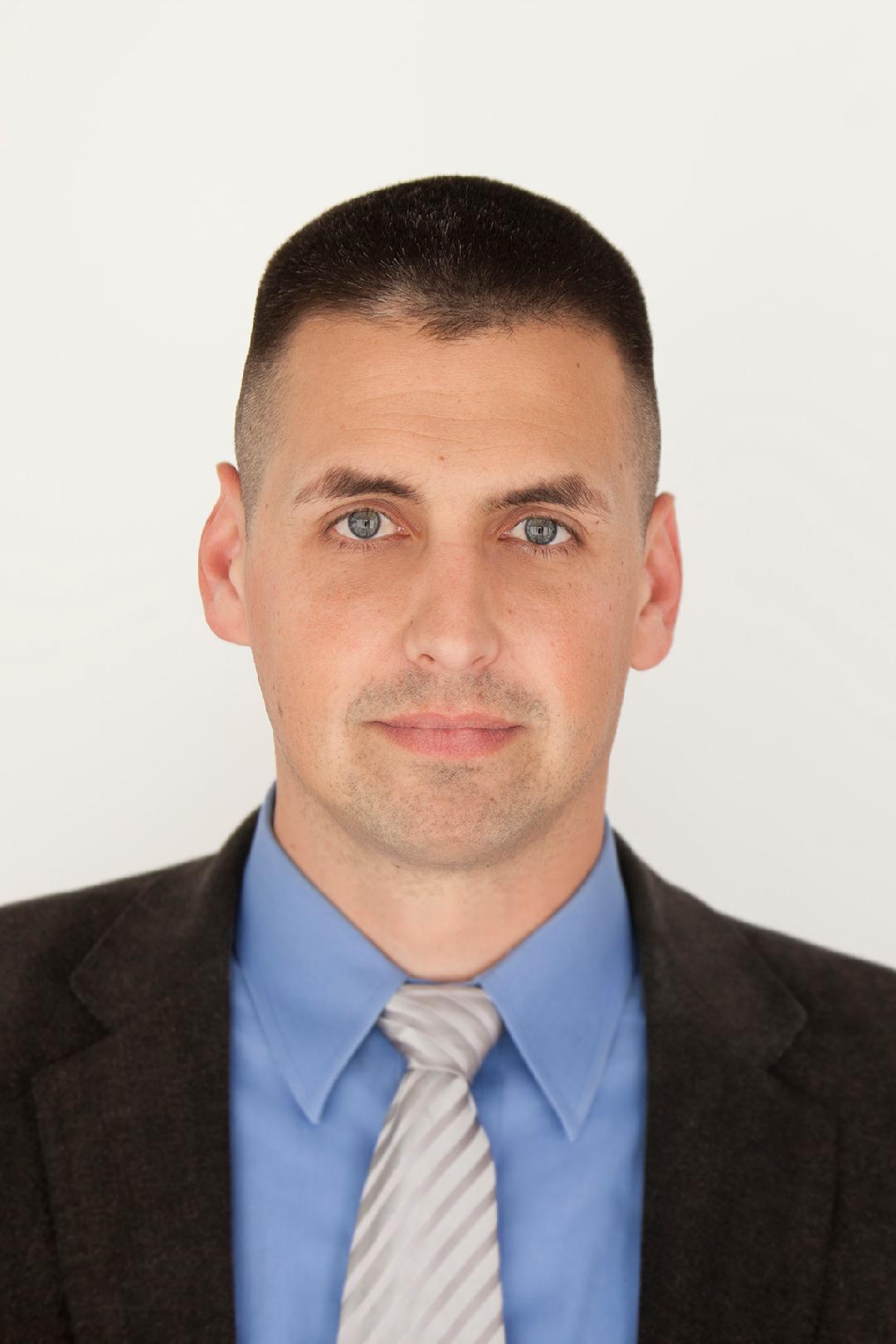
Q: Why did you decide to run for Pennsylvania Attorney General?
A: “There’s not a lot of offices or positions in government that have that impact on a large scale. The Attorney General’s Office has the ability to keep the government in line, as well as to make sure citizens aren’t violating one another’s rights. So, it’s a very broad platform to be able to protect individuals, and it was after I started running for this office when I really decided this is what I want. Even leading up to it, it was kind of undecided until it became real. This is what I want to do.”
Q: What job did you have before running for Attorney General? How will this experience help you if you get elected?
A: “I’m an attorney right now. One of the qualifications for being an Attorney General is you have to be an attorney. I’m practicing right now to be able to understand a lot, but it’s also important to know a lot of the logistics, and that’s something that you have to depend a lot on your support staff to make sure that all the things are getting done that seem like the little things, but they can create a lot of technical difficulties for you. I’ve seen a lot of that, but I know that I will depend largely on the attorneys of the Attorney General’s Office. There’s attorneys there with many decades of experience that I’ll lean heavily on. I’m also the Vice Chairman of the Constitution Party of Pennsylvania, and I’m the incoming chairman for the National Committee, and so that experience of not just politics within the Democratic and Republican Party, but outside of those groups, that’s given me a lot of perspective on how things can be fixed. I think that experience is actually what is most valuable to me as Attorney General.”
Q: What do you, your party and your platform stand for?
A: “It’s pretty simple. It basically is the reflection of the Declaration of Independence. We believe that every human being has certain inalienable rights and that it’s the job of the government to secure those rights. So, when the government is taking rights instead of securing them, they’re violating their purpose, and all the public functionaries that are doing that are in the wrong. That’s where the Attorney General’s Office can correct those government officials that are doing the wrong thing. A very limited government is limited to the purpose of securing individual rights.”
Q: If you do get elected into office, what is the first thing that you’re going to address?
A: “I’ve heard from a few people about issues they’ve had with government officials. So, judges that are doing something and get called out on it, they go after the person who called them, or local prosecutor’s offices or police offices. I’ve heard several stories from several different areas about this, so that’s probably the first thing that we would target is just looking into these complaints. Just because somebody complains doesn’t mean it’s legitimate. However, there’s enough complaints out there that I have seen some of the ripple effects from that. There are certainly some issues that need to be addressed. So that’s going to be the first thing, just investigating some of those claims.”
Q: Why should 18-year-old high school students vote for you?
A: “Well, first thing is, this is the government that you’re going to be living under for a long time, so it’s important for you to make sure it’s one that you can be successful under. A government that is securing your individual rights allows you to shape your future. A government that is taking your individual rights and telling you how your future is going to look limits you dramatically, not only in what you can do, but also in being able to protect your friends, your family and your children at some point. So if you don’t stop the encroachment now, the government, when you get to be my age, is going to be a very serious problem.”
Q: All right, now I want to talk about some of the issues that are important nationally, but also to our student population. So first thing: what is your stance on taxes?
A: “So there’s legitimate taxes and there’s illegitimate taxes, what Frédéric Bastiat calls legal plunder, where one group decides they can take money from everybody and give it to themselves or the people they want to give it to. So legitimate taxes are taxes that are essentially voluntary in contribution, and they go to purposes that the government is supposed to be doing, so securing our individual rights. So if you’re taxed on a purchase you make, that would be a voluntary contribution. You go out, you decide to buy a car, maybe you get taxed on the sale of that car. That money is turned around, used to secure your rights through a police department that investigates murder, theft, things like that. So legitimate taxes aren’t diverse. You can choose to purchase or not purchase, choose to put the money into that tax system or choose not to. And the use of that tax money needs to be to secure your rights, not to take your rights.”
Q: What would be some examples of illegitimate taxes?
A: “So property taxes are one that comes to mind very quickly. Every time somebody purchases a house, and then from then on, several different governments demand money, and if they don’t get their money, they take that person’s house and sell it to get that money. Extremely illegitimate. It’s a coerced tax. So if you don’t pay, there’s a heavy threat on you, and it’s beyond just being a threat. It’s one that’s carried out very regularly. You have seniors who are on a fixed income, so it’s something like that, and the taxes are going up every year. They can’t afford to pay. Suddenly, their house gets taken. So that’s a huge threat to individual rights right there.”
Q: Under your administration and your party’s principles, illegitimate taxes would be abolished. Am I understanding that correctly?
A: “Yeah. So if we had control of the General Assembly, we would be getting rid of all of those illegitimate taxes. As the Attorney General, there’s a limit on what the Attorney General can do. There’s laws the Attorney General has to follow as well.”
Q: I have a follow-up question to that. So the government is collecting money to pay for governmentally-funded programs through illegitimate taxes, whether you think that’s okay or not. Where would that extra money then come from to fund things like public education and other social services that are important to the people that are now paid for by government taxes?
A: “Yes, that’s a good question. The real answer is, first and foremost, that the government’s purpose is to secure our rights, not to give us things. There isn’t a securing of our rights in giving us social programs. Education is one of those things. For the government to educate people, that doesn’t secure their rights in any way. It never used to be a government thing. It used to be communities. It used to be parents that would get together and have these schools. And the plus side of schools that aren’t government run, no taxes fund them. And secondly, no government agenda. Everything the government gets into now has a political agenda to it, whether or not you want your kids educated a certain way doesn’t matter. If it’s a government-run system, it’s, again, a coerced system. So you either allow them to educate your kids the way they want to, or they take your kids away from you. It’s the same with every step along the way. So if you have government funded retirement accounts, such as Social Security, they take money away from that account whenever they want to. They pay people less year by year by the fact that they don’t keep up with inflation. They promise all of these good things that they don’t have any real authority to give. They tax people based on giving them these things, and then they give them a very poor version of what they could have. The fact that the government isn’t supposed to do these things doesn’t mean nobody is supposed to. Communities, individuals, private organizations definitely need to be taking care of others in the community. They need to see that proper education is given to those in the community. We aren’t anti these services, we just would like to keep the government out of it, because it’s not part of the government’s role.”
Q: As you said, if the government is taken out of the education system, then each community would do its own thing with private schools. So my question for that is, across America, and across the United States, each school would have its own curriculum, so students will be learning different things and going into different subjects and getting a different level of knowledge. So how can you ensure that after high school education, if students decide to go on to college or pursue some other postsecondary education, how can you ensure that they will be competitive with one another?
A: “Yeah, so competition is really the key there. If people educate one group to a substandard, that group is never going to be able to advance to a certain point. Purpose for educating that group, one of the main purposes, is to get a good job, to get that higher education. So if you don’t educate people to a certain point, they can’t get into higher education to get those jobs Exactly. So you’ve got not only private groups that are interested in seeing those things happen, but you’ve got private businesses looking to have those things happen. There’s a lot of businesses out there that you have to have a certain level of education to be able to do the job. So businesses are going to look to the schools in the area to make sure that they’re getting the funding they need to get the proper education, and to make sure the agenda, the curriculum, meets what’s needed to have that competitive advantage. Also, on the other end, you’ve got all kinds of private groups that do grants and get people to higher education. So there’s a lot of ways out there, but that competitive situation is what really makes it good. Not everybody needs to go to college. In fact, the government pushed that everybody has to go to college to get a good job. And then you look at the government’s own statistics. Decade by decade, unemployment has increased, even though graduation rates for high school have gone through the roof. Graduation rates for college have gone way up. So there’s an agenda that’s being put by the government that doesn’t line up with the results, whereas if we move it back to the private sector, that competition will allow people to move in the direction without being forced into spending a bunch of money on college to go somewhere they don’t want to go in life.”
Q: What are your thoughts on the First and Second Amendment?
A: “Going back to the Declaration of Independence, everybody has certain natural rights, those rights cannot be violated by anybody without due process of law. So to take somebody’s life would be a violation of those natural rights. So people have a right to defend that life. To take somebody’s liberty, their freedom of speech, their freedom of association, violates those natural rights. Those First and Second amendments don’t give anybody rights. They just let the government not have the right to encroach on the rights of the citizens. So it’s important to keep that in mind. They’re not giving right, just delineating. Government has no authority to cross these boundaries.”
Q: I have a question specifically about the Second Amendment. At Altoona Area High School, a few years ago, we had a shooting threat. It was a hoax, but we went into lockdown. We had SWAT teams rushing into the school. So what is your stance on gun control and combating these issues for education?
A: “So the first thing that we have to acknowledge is that society as a whole is going to drive whether or not things are going to go well and go badly. If we’re promoting bad behavior, if we’re promoting bad decision making, it’s going to be reflected in school, at work, in social events. So the first thing that we have to recognize is, we as citizens, need to work to rein in that bad behavior. We need to create a better society mindset. The second thing to keep in mind is, if we prevent guns from being in school, then shooters can get into school and wreak havoc without being stopped. So if you have resource officers, if you have teachers that are trained on that sort of situation, you have a protection there that a gun free zone wouldn’t allow. So I think it’s twofold, like that. We need to do a lot of work in society to get people more respectful of one another, but also dealing with issues better, emotionally, mentally, making sure they’re getting the help they need, and then secondly, making sure we’re not taking away what people need to protect themselves and to advance in life.”
Q: What are your thoughts on abortion?
A: “All right, so again, everybody has certain inalienable rights. First, one’s the right to life. There is no right to kill a baby without due process of law proving that that baby violated somebody else’s rights. It’s an issue, though, because it’s not simply a one person issue. There’s two people involved in every pregnancy. At the minimum, I think the man gets off scot free far more often than he should. I think he should be held responsible a lot more, but every issue of abortion is always dealing with the baby, with the mother, and so we have to be careful that when we’re taking care of the baby, we’re also taking care of the mother. It shouldn’t be, in my opinion, legal to kill a baby. And we as a society, we as individuals, we as a community, need to be taking care of those that are in a difficult position.”
Q: What about the environment, climate change and things like that?
A: “So there is no natural right to clean water, clean air, that sort of thing. There’s a private property right that everybody has the right to quiet enjoyment on their private property. So your neighbor cannot be polluting your property to the point that you can’t use it. That principle extends out to states. One state can’t be polluting a river that’s causing all kinds of havoc for another state, or polluting the air that affects those across the border in another state to the point where they can’t use their private property, and it extends out to nations as well. So at a local level, there’s things we can do in an immediate area. When you get to a state level, it becomes much harder to do things that are impactful, to take care of the environment. Water is one of the easiest ones to catch. It’s a little bit easier to detect. Pollutants are starting at this point in the water, and they’re causing all kinds of problems down here. Biggest difficulty is those in government that are allowing that to happen. So we need somebody that’s going to hold government officials in check, making sure they’re doing their job; they’re not getting paid off. They’re not allowing things they shouldn’t allow that way, but we have to be careful that we’re not taking the rights away from individuals and business owners to the point that we’re harming them. So a certain amount of proof is provided before it’s acted on. When you get to the global level, then we’re really in trouble, because our government has no authority over anybody other than our country. So we can do all kinds of great things to try to save the environment. But if China and Russia and some of these massive countries are increasing their pollution, they are gaining an advantage because they’re disregarding what they’re doing to the planet. We’re not improving the situation, and we’re also possibly harming our own citizens by some of the measures we take. So it’s important that we take care of our environment, but we also have to keep in mind that we can’t be going around violating everybody’s rights on something that we don’t have a definitive understanding of. Here’s the harm, here’s the person causing it, and we have jurisdiction over them.”
Q: You said that when it comes to pollution, there should be someone there to check that government officials are doing their job. Who would do that?
A: “A position like the Attorney General’s Office is there if they get a complaint saying these guys aren’t doing their job and making sure that that business isn’t dumping into my well. The Attorney General’s office should take that seriously. They should invest and find out who’s supposed to be keeping an eye on that and why it’s not getting done. That’s the first thing. Second thing is just the general citizen. Everybody who’s a citizen of Pennsylvania, needs to be keeping an eye on Pennsylvania businesses and making sure they’re not just being destructive or disregarding the welfare of those around them. [There’s] pressure that the citizens can bring, personally, as well as through their elected officials. And then beyond that, there’s different organizations, such as the EPA that can help their professionals identify issues and seek to stop it, also what needs to be done to clean it up. So we have a lot of different people and groups that can affect that. The biggest issue is whether they’re all apathetic at the same time or whether we’re all taking our role seriously.”
Q: Concerning the balance between federal and state power, how will this affect the Attorney General position?
A: “Yeah, so the U.S. government has very little power in states. They’re limited by the U.S. Constitution. Anything not specifically given to them in the U.S. Constitution, they don’t have authority. It’s the state’s role, and so states need to be taking that seriously and pushing back. The U.S. government has moved into a lot of areas such as education that they have absolutely no business being in. And what they’ve done with things like education is they put a huge financial burden on the state and have not given the state anything. So anytime that occurs, it’s up to the state officials to first push back. So one thing that the Attorney General’s Office can do, they can bring suits in federal court to push back on those things. They can also back up local law enforcement. If a U.S. government official comes in and abuses the people of Pennsylvania, local law enforcement can stop that. And if the U.S. Attorney General’s Office would like to open dialogue on what the U.S. officials can and can’t do, the Pennsylvania Attorney General’s Office is going to be where that’s going to start. But if the local officers are trying to enforce protections for the citizens against the federal agents coming in, they’re going to need somebody to back that up. A federal government official comes in and they have some illegitimate claim. The first thing that comes to mind is farmers. They’re often abused by the U.S. government with various inspections and requirements that the U.S. government has no standing to be able to do in the first place. In the second place, what they’re doing is violating the rights of those individuals. So if you have a county sheriff that comes and arrests those federal agents, they need a prosecutor that is willing to prosecute those federal agents. So the Attorney General’s Office has a couple different fronts that they can help protect Pennsylvanians against the U.S. government.”
Q: What about immigration and the border? What are your thoughts on that?
A: “If you don’t have the border, you don’t have a country. If it’s just open to whoever to do whatever, you don’t have a country. You are open to the taking is essentially what you have. So the border needs to be a secure area. Entry and travel needs to be checked. If you don’t have somebody checking it, who’s to say who’s coming in. There’s a lot of countries out there that are very interested in harming the United States for their own advantage, economically, for their own advantage. As far as being a world power, if we have no ability to check who is coming and going, we’re really putting ourselves at a high risk, and we’re putting our citizens at a high risk. It would be like me saying that you can’t lock your house. Anybody can come and go in your house whenever they want to. There’s a lot of threats that come from that. Legal immigration is a check on that. They get to do a little bit of a background check. They get to make sure that people coming in aren’t coming to do us harm. It’s not 100% the full way through.”
Q: What about measures for the economy and to curb inflation?
A: “It’s a difficult place for the Attorney General because the Attorney General doesn’t have authority needed to correct those issues on a limited scale. They can refuse things like legal tender laws that the U.S. has tried to put into place. They can push back on some things that are clearly unconstitutional, but in order to create a state currency, it requires the General Assembly and the governor to do those things in order to really correct that issue. The best thing to do is to advise the other government agencies.”
Q: Would you support a state currency?
A: “If we return to a silver currency? I would very much support a gold reserve going back to a silver currency because it wouldn’t mean that you have to carry coins in your pocket. You can still use your credit cards, you can write checks, all of that sort of thing. But it prevents what’s destroying the economy right now.”
Q: How would that transfer between states?
A: “Other states could follow suit. That’s the first thing. We have fifty different states that can do fifty different things, but they can also see that one state’s got it right, and they can follow suit and make it more uniform that way. But being uniform isn’t necessarily the best thing. Being competitive is probably the best thing. So under the Roman Empire, they conquered all different countries, but they didn’t make all of them use Roman currency. They allowed each of them to continue with their currency, and as Rome failed because they were doing foolish things like inflating their currency, other states that were under the Roman Empire continued to use pure gold and silver and became known for it. And so there were certain states under that empire that flourished economically because everybody wanted their coins. And I think the same thing could happen in Pennsylvania if we create a state currency of silver with a gold reserve, every other state is going to want it. Every other private citizen that wants to protect money from inflation is going to want it. And so it’s going to be a huge driver for our Pennsylvania economy.”
Q: Okay, so say that the state currency is created for Pennsylvania. I want to go buy something in Maryland, but there’s a different currency there. How would that work?
A: “You would change the currency just like if you were going to another country to exchange it for their currency. With silver and gold, you use standard amounts. So a troy ounce amount of silver. It’s much easier to use that, state by state, if everybody’s on a silver or gold currency, than it is to use paper currencies back and forth. And actually, that was one of the things that the founders created for the U.S. Constitution. All of these states were doing these paper currencies that were used in their favor. So they would have somebody else from another state come in to act business. They would require them to use their currency, and then when that customer went home with that currency, they inflated it here, causing them to lose value there. So that inflation abuse created a lot of the issues, which is why the Constitution prevents anything other than gold and silver from being used as currency.”
Q: What about gender identity and the LGBTQ+ community? Could you address that and how it ties into the Attorney General position?
A: “So everybody has certain inalienable rights: life, liberty and private property and then often, pursuit [of happiness] is thrown in there. None of those things require the violation of anybody else’s natural rights. And in fact, you can’t have a right that violates somebody else’s right. So I think consenting adults can do anything they want to do.”
Q: You said that you have nothing against adults. What about high schoolers or minors that are part of the LGBTQ+ community?
A: “So minors are under their parents’ guide, so until you reach the age of maturity, there is a certain limitation on your liberties, and it’s done because at a younger age, there’s a maturity development that hasn’t happened yet. Ladies mature faster than men do mentally, but there’s still a certain stage. So you’ve got your younger children who basically need a parent all the time to take care of them. And then as you grow and you start to gain independence, you start to understand how the world works. You can pick out your own clothes. You can order your own meals or restaurants. You get to the point where you can drive, you can choose to work a job, you can choose to go to college. And as you gain in that maturity, that protection of the parents starts to move away. So when you hit maturity, which depends on the status, what age that is, once you’ve hit that level, that’s on you now. You can do whatever you want, but when you’re under that age, that age is kind of just a subjective number that we picked based on where we think people are at the time. When you’re under that unfortunately, stuck under your parental supervision, it is possible for a minor to be emancipated. To say I’m developed so far that I should be treated as above the age of minority, or my parents are creating a lot of issues and violating my rights, and so I need to be free from their supervision. So there are ways around that general standard. But as a society, we have to act on generalities a lot of times. So I understand when you’re younger, there’s things you want to be able to do however. We have to make a limit at some point, and that’s where it’s at right now.”
Q: Just for the final few minutes, I want to return to education and costs for college and other pursuits after high school. So on your platform, it states that “All teaching is related to basic assumptions about God and man. Education as a whole therefore cannot be separated from religious faith. The Law of our Creator assigns the authority and responsibility of educating children to their parents, and education should be free from all federal government subsidies, including vouchers, tax incentives and loans, except with respect to veterans.” You already mentioned that you want to privatize schools and education, so how would that work between the balance of religion and education?
A: “So all education has a connotation. Christian, whether it’s Muslim, whether it’s secularism, all of them have religion attached to it. So you can either leave it with the government to decide which religion it has to be attached to, or you can leave it to communities and parents to decide what worldview they need to attach to education. Different worldviews lead to different teachings, and that’s important to understand. There is no teaching that is completely void of a worldview, even when you teach two plus two, well, you’re either teaching that was created that way, or you’re teaching that it was just randomly happened to be that way, and that view depends on what you can do with it and what you can rely on today. So there is no education that’s void of any type of religion. It’s all connected to some religion. And that’s again, where I say you got to keep the government out of it. If the government’s deciding your religion for you, you’re going to be in a bad position very quickly. If the government decides what curriculum you need to teach and what curriculum you can’t teach, they’re going to instruct that curriculum to their advantage. So they’re going to teach you that inflation is good, rather than teach you that inflation is destroying our economy. So removing government from that is ideal, whether or not I agree with the family or community’s religion becomes irrelevant at that point.”
Q: The platform also goes on to say that “compulsory attendance laws should be repealed.” So how are you going to ensure that students are, in fact, learning?
A: “So the first issue is whose job is it to ensure that they’re learning, and who’s to ensure what they’re learning. And you know, this is the parental realm here. Parents have the authority over the children with all of these things, as far as education, where they live, how they live, they get taken to a religious institution, even though they might not want to go to that’s the parental sphere of authority. When you start saying that we can tell parents what they have to do and what they can’t do, it becomes a very big issue. When you decide where the cutoff is, such as compulsory education up to eighth grade, it’s, again, just kind of a subjective thing that we’re throwing out there, but there’s no foundation for the government to have authority to do that. That’s not securing individual rights. So there is a balance that has to get struck between parental authority and child abuse. So that’s the one caveat I would leave you with. If at some point, you take a child and you lock the child in the closet for the first 10 years of his life, there’s going to be some very serious development issues there. So there has to be some lookout for what’s child abuse and what’s not but the fact that they teach them the ABCs and then move on from there doesn’t necessarily qualify as child abuse, and there’s some folks that have done very well in life, that haven’t had much in the way of formal education, and I think that’s what we got to be a little bit careful of, is who’s deciding what’s formal education, deciding what’s sufficient, who’s deciding what’s necessary?”
Q: I have one final question. If you’re letting communities privatize schools and education and having the parents introduce their own standards and their own beliefs into the community’s schools, do you believe that the schools will have a lack of diversity? And do you believe that diversity is important for the development of ideas? Will that have any impact?
A: “Yeah, diversity for diversity’s sake is very problematic. If all we want is diversity, we wouldn’t need prisons. We want those diverse people. So we want to be careful that we’re not just having diversity for diversity’s sake, because that’s damaging and not beneficial. What may be beneficial is exposure to good diversity. So if you have kids taking economics classes, being exposed to different successes, they can see this form of business versus this form or business in this area versus that area. And the more exposure to good stuff like that they can get, the better off they will be, the more competitive they will be. But it’s not a be all, end all, necessarily, when the kid grows up, they can choose their diversity.”

Q: Why did you decide to run for Pennsylvania Attorney General?
A: “I was involved in student government when I was your age, but I never really was involved in government. I was never really involved. I did other things in college, I did music, I did radio, I did other activities. And when I came out of law school, I started getting involved. I was at a very big law firm. My dad had introduced me to somebody who was running for State House, and I started volunteering with her for her State House race. And knocking on doors, helping her at events, just kind of your basic volunteer. And I really enjoyed it. So a couple years later, someone else was running, and I actually became campaign manager. Anyway, I became his campaign manager, and I liked being involved in politics. When I ended up being invited to be Deputy General counsel to Governor Tom Ridge, and he was governor back in the mid 90s, I really enjoyed doing public service. I had two areas of responsibility: health care and Environmental Affairs. And when I came out of the Governor’s office, I started working for a health insurance company. It was called Aetna. And after a couple years, I thought, ‘I’d love to get back into public service.’ And I actually started talking to people about running for Congress in southeastern Pennsylvania, and I started talking to some of the local people who I knew, and they said no. One day, I was at my then-seven-year-old son’s soccer game, and I thought, ‘You know what, if I’m running for Congress, I’m going to get to see everybody else’s kids soccer game, but not my own.’ So I said, ‘You know what? For the next twenty years, I’m going to focus on my career. I’m going to earn money. I’m going to help pay for my kids’ college. I’m going to save for retirement, and if the opportunity comes along for me to get back in the public service, I’ll do it.’ And luckily, my career went nicely, and so I was in a position where I could afford to run for public office, and my kids had grown up. But as having been a Republican my whole career, the Republican Party changed from the Republican Party that I knew of Tom Ridge and moderate Republicans to the party of Donald Trump, and that made me uncomfortable, and it also made me unelectable. So I thought to myself, ‘I guess this is not going to happen.’ And sometimes when you put a dream on hold, you get a chance to fulfill it, and sometimes you don’t get that chance. But the Forward Party approached me about a year ago, and said that they would like to establish themselves as a party in Pennsylvania, as a centrist party. Andrew Yang and Christy Whitman, former Governor of New Jersey, had started this party. But each state is different in how parties get recognized. So in some states, like Colorado and Utah, you just have a big petition drive, and then you’re on the ballot. Pennsylvania, you have to run a candidate statewide who gets 2% of the vote in 10 counties. And if that person does that, then the party gets established as a minority party. So in Pennsylvania, there are majority parties, the Republican Party, Democratic Party, and then there are minor parties like the Green Party and the Libertarian Party. And we’re trying to establish ourselves as one of those parties, so that we can be on the ballot every election. And it’s easier. There are procedures for how minor parties and major parties get on the ballot, and there are also procedures for how non-parties can. So when we started this, we were not a party. We were just called a political organization, and we had to get 2500 signatures statewide to be on the ballot, which we did. We got about 4100 so we had plenty of signatures, and we’re on the ballot. But going forward, if we can establish ourselves as a party, it’s a little bit easier to get on the ballot. And also, people can run as a Forwardist, you know, not as a Democrat, not as Republican, and they can actually run as an “S”, that would be our letter. And so then you can run. You don’t have to run as somebody else. The example is in some places where there are lots of Republicans or lots of Democrats. So in a very Republican area, Democrats have no hope of winning, but a Forwardist, someone who is center might have a chance of winning. So you might elect them if you had a Republican against the Forwardist in some districts, there might be an opportunity to win and vice versa. Say, in the southeast districts that are very Democratic, a Republican has no hope of winning, but maybe Forwardists would have a chance. They approached me and said, ‘Would you do this?’ And I thought, ‘You know what? I had worked in the government. I’ve worked around the government, and I always wanted to be a candidate,’ and I thought, ‘You know what, I could do a good job as Attorney General.’”
Q: What do you, your party and your platform stand for?
A: “The third parties themselves really only stand for a kind of big idea. Everybody, all registered voters, should be able to vote in primaries. An Independent Redistricting Commission, so that every 10 years, when they redraw the lines for congressional districts and state legislative districts and state Senate districts, that the people drawing those lines are not overtly partisan. So you have independent experts who say, ‘Okay, here’s a fair way to draw these lines.’ And the third thing that we’re very involved in is ranked-choice voting. Do you understand ranked choice voting a little bit?”
Q: Could you explain it?
A: “Sure. So rank choice voting is you vote for somebody. You go to vote and you have a first choice and a second choice and a third choice. So if one person gets 50% of the first choice, then they win, okay. But if someone gets, say, 40% of the first choice votes, but then you know 20% of the second place votes, then, there is a formula. You go, ‘Okay, well, I wanted Eric first and Melissa second.’ Well, Eric didn’t get enough votes, so Eric’s not gonna win, but Melissa got a lot of second place votes. I’ll give you an example. In Alaska, do you remember Sarah Palin? She ran for Vice President when John McCain ran for President, and she was a pretty controversial figure. Anyway, having been Governor of Alaska, she decided she wanted to get back into politics, so she ran for Congress. So she got the most number of first place votes, but it wasn’t enough. So somebody who was more moderate than that other person gave them first place votes, but also got a bunch of second place votes. And what it means is, is that you end up getting someone elected. We say, more popular, but more people think, ‘I like this person first, but I like that person second.’ So it allows for better representation. And that’s the core of what the Forward Party is founded on as it relates to individual issues. So the party believes that these problems [exist], and we got to solve them, but we’re not going to solve them from the extremes. We have to solve them by trying to find a compromise. But the actual issues that we stand for are up to the various candidates. So for example, I’m pro-choice. Some Forward candidates in other places might be pro-life. I’m in favor of banning new assault weapons because I think your generation is growing up in a world where every time you turn on the TV, there’s another shooting at a school, and inevitably, someone is using an AR style weapon. And I think about that school shooting, that shooting in Georgia with that 14-year-old. Red Flag laws, which are about making sure bad people don’t get guns, and universal background checks to make sure that people don’t get guns. Those are all really important. But the only thing that’s going to stop a 14-year-old is that his father couldn’t buy his son a new assault weapon for Christmas the previous year. So I think that we have to take some tangible steps to reduce the number of weapons like that in Pennsylvania. And we’re not saying, ‘let’s take away people’s guns.’ We’re just saying, let’s stop for a little while from selling new ones. The only people who are unhappy are going to be people who manufacture guns. And though I understand that that creates jobs for people, the second matter is we gotta [act]. We’re all living with it, but your generation is bearing the brunt of this.”
Q: Why should 18-year-old high school students vote for you?
A: “Okay, so the thing about voting for me is I’m a party that is trying to break through politics, so it may be hard for me to win because we can’t raise as much money as the major parties do. Okay, but you guys, we’re trying to create a party that, if it works in the future, will help the two parties on either side work better. For example, one of the goals in the Forward Party is to eventually elect some state representatives to Congress, people who then are in the middle, and so that when they’re fighting on either side, you need a handful of people in the middle. So I’ll give you an example. A couple years ago, the Senate had a Senator, he’s still there, Senator Manchin, and they were like moderate Democrats. And they would say to the more liberal Democrats, ‘listen, if you want to get this done, you gotta help us. You got to help moderate this.’ And it’s sort of the same idea, which is, by having just a handful of people, you can have more influence. And so I think for young people, this is a way to help something new that, frankly, is going to take, you know, five or six, or 10 or 15 years. In other words, this is the kind of thing that 10 years, 15 or 20, years from now, when you’re interested in running for office yourself, we need more choices in politics. And I think that an 18-year-old, you know, an 18-year-old, would say, ‘hey, let’s do something different.’ And in the Attorney General’s race, it’s not as dangerous as the presidential race. You know, people are very worried about the presidential race. We’re not running. So when you go vote, you vote for the presidential race, then you do the Senate race, and then the next race is mine. And you go, ‘you know what? With that vote? [I’ll vote a minor party candidate.]’ For young people particularly, they try to help us old people build something better for you guys to have when you get older.”
Q: If you do get elected into office, what is the first thing that you’re going to address?
A: “It’s three things I kind of care about. One is obviously to make sure crime happens not as often. There’s a lot of crime after the pandemic. Since the pandemic has gone away, things have gotten better, but people don’t feel safe, so making sure that Pennsylvanians feel safe. Part B is protecting democracy. It’s funny, because that seemed like such an [accepted] idea, but after Jan. 6, 2021, when there was an effort to basically overthrow the government, it’s really important that elections be fair and that whoever wins wins, and that the loser shakes the winner’s hand and says, ‘I’ll beat you next time.’ If I were elected, I would take over on Jan. 17. So although hopefully it isn’t the case, the presidential election that we’re having right now might be still in place, and I’m an independent, so I’m not either a red or blue team. Having somebody who’s neutral to help defend the outcome of the election is, I think, really important, and that’s an important thing about not being partisan. I’m not, because the other thing about Attorney Generals these days is there’s like a red team of Attorney Generals and a blue team, and depending on which team you’re on, you act in a certain way based on your party preference. What I say is, if Washington has a regulation that is imposed on Pennsylvania, the question should be, is this good for Pennsylvania, or not? Is it the Harris administration or the Trump administration? Whether it is or not, I’m not looking at it that way. And then the third thing I care about is health care. So I spent a lot of time my career working in health care, both with the Governor and also with health insurance companies, and I worry a lot about hospitals being acquired by for-profit entities. I think a lot of areas have this problem where the smaller hospitals are having a hard time staying in business, and so they often sell themselves to the for-profit entities who don’t really have the interest of the people and the workers, and that’s part of the Attorney General’s jurisdiction is to oversee those transactions. So someone like me, with the amount of health care experience I have, I think I can do a better job of protecting Pennsylvania’s hospitals, particularly in areas like yours which do not have as many health facilities. And so it’s really important to keep them open.”
Q: I want to change topics and talk about specific issues that are important statewide, nationally, and also to our students at Altoona Area High School. You already touched on it, but what is your stance on abortion?
A: “I’m pro-choice. So here’s how I feel about it. For many years obviously Roe v. Wade was the law, and the law was that you had a freedom of choice, but with some reasonable restrictions. And that was sort of the way the world was going for many, many years. And then what happened was, as the pro-abortion movement got stronger, they started passing greater and greater restrictions. And so that’s where, ultimately, the Supreme Court basically threw out Roe v. Wade, which said there was a federal constitutional right to choose. I think we [should] have something where there’s freedom of choice, but with some reasonable restrictions. Because I respect the fact that on this issue, some people feel very strongly on either side: abortion is murder, and people feel it’s my body, I can do what I want with it. And I think the compromise is yes, but there has to be some oversight. So that’s sort of where I am on abortion.”
Q: What is your stance on taxes?
A: “Once you have been in public service and your paycheck is paid by taxes, you feel much better about paying taxes. I will tell you that it’s really important that the government does important things for everybody at the state level, county level, and at the national level, so we have to pay taxes, okay? And that’s kind of part of supporting how our government works. And I feel like you need to have a fair tax system. For example, the tax system that Donald Trump put in place that cut taxes for very wealthy people didn’t seem very fair. It also was a tax system that favored people who had real estate or businesses, as opposed to people like me. I was just an employee of a company. So for me, the tax cuts actually, I ended up paying more taxes. And so I feel like, look, it’s an important part of being a citizen to help, you know, to help support the government. So when you at some point, you’ll go get a good summer job or whatever, and you’ll get your paycheck, and you go, ‘Wait a second, where did all my money go?’ It’s to help. It’s to do a lot of good things. Soon enough, I will be old enough for Social Security. So thank you for your contributions.”
Q: What about immigration and the border? What are your thoughts on that?
A: “Yeah, sure. So look, obviously, we’re not a border state. As Attorney General, we have to make sure that we try to crack down on illegal immigrants, but we have to understand that all of us, either, you know, 20 years ago or 100 years ago or 200 years ago, unless you’re Native American, we’re all children of immigrants. And so what makes America great is that all others all came from someplace else, and what makes America a great country is everybody’s diversity. So we need to fix illegal immigration. We need to fix our immigration system. As Attorney General, I do whatever I can to make sure that we crack down on illegal immigrants. But we also have to understand that there’s a lot of people living in this country who are here illegally, but also the dreamers, like folks who came here for no fault of their own, who have basically lived in America for their whole lives. We have to think, we have to change the laws. And I think they were trying to do that in Washington. Unfortunately, they couldn’t get it done. But I’m hoping that we do get immigration reform, that we can kind of keep having people come to America and also figure out how to help the folks who are here, who have been, you know, living among us, working hard, raising their families, and not create a situation where they’re afraid that they’re going to be sent back to a country that they never lived in, they have no recollection of and they never lived there.”
Q: What about the economy and inflation?
A: “The Attorney General has almost nothing to do with the economy or inflation, except to this extent. So one of the things the Attorney General does have jurisdiction over is consumer protection. So for example, I investigate how landlords are treating their tenants. I can investigate companies that are scamming people. So my idea as Attorney General is you try to cut down on crime, try to cut down on scams, try to cut down on people being mistreated, and their economic situation will be better. On inflation, again, the Attorney General doesn’t have any oversight on that. But you know, the truth is, the reason we have more inflation than we used to is because we went through that pandemic, and the government pumped a lot of money into the economy so that we were all okay. Because one of the things about the pandemic, we all lived through it together, is we didn’t know how it’s going to turn out. People lost their jobs. It was a moment when, kind of going back to my taxes discussion, it’s a moment when that’s when the government steps up and says, ‘look, we got your back. We’re going to send money, we’re going to make sure everything is available.’ But the problem is all that spending caused prices to rise, and although now we’re getting back to normal, the fact is, things are more expensive. Inflation is a natural part of the economic cycle that you have. You can’t have growth without some slow inflation. But what we had a couple years ago was bigger inflation than we had in a long time.”
Q: You mentioned that the environment and climate change are one of your more important issues?
A: “Right. So here’s the deal: when I worked for the governor of Pennsylvania in the mid 90s, I oversaw the lawyers at the Environmental Protection Agency, and back then, we were very concerned about clean air and clean water, and that was sort of the focus, the environmental focus. And no one really thought about climate change. Okay, well, 25 years later, like we all know that climate change is real and we’ve got to figure out a way to slow down our carbon emissions so that we can curb global warming and start to try to slow the increase in temperature in the country. So from my perspective, I think what’s important that whatever environmental policy put in place, keep in mind the balance between economy and making sure people have jobs, but also to take into account the real, real problems with climate change, because the end of the day, if we don’t have a habitable planet, not having a job is [not as important]. So you have to look at the issues. At the end of the day, we all work together and honestly, to a younger audience, this is something that is really going to be more your issue than my issue, but that’s why I think those of us who are in power now, need to take steps now so that 25 or 30 years, 50 years from now, you guys are living in a world that’s habitable.”
Q: What are your thoughts on healthcare?
A: “Let’s talk a little bit about nonprofit hospitals from being acquired by for-profit hospitals, and if they are acquired, which sometimes has to happen. [We need] to make sure that those acquisitions are carefully supervised. Part of healthcare is access to healthcare. So for many years, I worked in Medicaid, Medicaid managed care. So there’s two big programs, Medicare is for old people. I’m not old enough for that yet, and Medicaid, which is for people with low incomes. And in fact, when I worked in Harrisburg, I started a program called health choices. That was the beginning of managing Medicaid, and I spent my last job before I left at a company called AmeriHealth Caritas, which I don’t know if you’ve heard of it. I don’t know if they’re up in the Altoona area, but essentially making sure that people have access to care by both having hospitals and doctors, but also being able to pay for care. And so the Medicaid program really does, and it’s cheaper. For example, the CHIP program. So those programs, again, going back to taxes, those programs help a lot of people make sure they get health care. And what’s good about managed care is the company’s incentive is for you to get enough care to stay healthy. There, the interests are aligned. So the other thing about healthcare that I want to talk about is I also helped get a law passed for kids with autism. It’s a law called Act 62 and it’s a law that requires us to pay for services for kids with autism. And when I got that done, it required us to work with both sides of both the Republicans and Democrats. It was a bipartisan effort, but when the Governor was in, Governor Rendell signed a law that helped the lives of 20,000 kids. But since then, there’s countless others, kids who have been affected by autism, and now there are services in Pennsylvania that are paid for by their health insurance. So it feels really good for me. That was something I did that I’m very, very proud of. And in some ways, when I’m doing it this time, I’m trying to have a chance to help people, but if I never get to help, Act 62 has made a difference in lots of people’s lives, and I feel good about that.”
Q: What are your thoughts on the First and Second Amendments?
A: “The Second Amendment, we talked a little about. I think the Second Amendment says you’re allowed to have guns, and I think the Supreme Court has confirmed that. As I said before, I think we might have to reduce the number of assault weapons, the AR style weapons, because they’re getting used in mass shootings, and we’ve got to find a way to slow that down. We’re not going to eliminate it, but we’ve got to make the world a safer place. And I think starting by getting those kinds of guns off the street as soon as possible, or at least reducing the number of guns on the street, that’s important. Well, the First Amendment, the freedom of the press, is very important. The First Amendment is really important. It’s actually one of those things that if you think about it, there’s a reason why the founders put it first. Yeah, because it’s one of those kinds of fundamental rights that I think we all enjoy as Americans and make America American.
Yeah, I just wanted to bring up those two amendments, and then you already talked about gun control.”
Q: Concerning the balance between federal and state power, I looked at your party platform and it states that “Building alliances and stabilizing democracy across the globe is key to maintaining a safe world for ourselves and our children.” So could you tell me a little bit more about that? What does that mean?
A: “So I think the idea is you build this kind of interesting system that says, ‘we’re gonna give the federal government certain powers, and whatever powers the federal government has not saved for themselves goes back to the people. But the problem with that is there are some, I think, fundamental rights. And so we’ll go back to abortion. So the idea of having some fundamental protections seems to be the right thing to do. Because even though you say, ‘Well, every state wants to do something a little differently,’ the fact is not everybody has the ability to move from state to state. There are a lot of people who don’t have the economic ability. They live where they live, and they can’t really go anywhere else. And so it’s really unfair for those people to be in such a place. I respect the fact that there are things that should be done by the states, but I think there has to be a set of federal protections that apply to an American, wherever that American lives.”
Q: The next thing I’d like to address is another quote from the party platform. It states that you “won’t dictate a rigid, top down policy platform and expect it to work for every community across the country.” So could you tell me a little bit about how that works on a governmental level?
A: “So what that says is that we, instead of, a lot of parties, like if you’re Democrat, you’re pro-choice. If you’re Republican, you’re pro-life. If you’re Republican, you’re pro-gun. It’s like everybody’s got these sort of set of rules. Well, the Forward Party says, ‘look, we think that the rules should be whatever is appropriate for the communities that we live in.’ The party is made up of former Republicans and former Democrats and people who are always independent. The idea is that they’re not going to dictate to candidates, this is what you have to believe in. Part of why I couldn’t be a Republican—I was going to run as a Republican when I was younger—is I couldn’t run as Republican now because most of my views are at odds with what the Republican platform is. So what the Forward party allows me to do is believe in the stuff I believe in, and also as a Forwardist I’m running statewide. But for example, if someone’s running in your community for state representative, and/or running in my community as state representative, there might be issues in different communities. So it gives people flexibility. From a voter perspective, the answer is, you just have to ask us how we feel about issues.”
Q: Here’s another quote from your party platform that I have a question about: “reform our republic to give Americans more choices in elections, more confidence in a government that works, and more say in our future. So our nation is firmly ingrained in a two party system at this point. How are you going to “undo” that, so to speak?
A: “For example, the hope is we can elect a handful of Forwardists. So step one is to get a party established. Step two is then to find good candidates to run. And if those people can be put in place, then for example, like the Pennsylvania legislature [Democrat-Republican balance] is like 101 to 102—it’s super close. If you just elect two or three Forwardists, then those three people could say to either side, ‘okay, for example, we’d like open primaries. That’s the price of our admission to help you be Speaker, the House or Majority Leader. We want open primaries so that independents can vote in major party elections.’ So that’s an example. So that’s how you start to break it down. But it’s hard. I mean, it’s a challenge, and I think you have to start by kind of the way we’re doing it, which is getting ballot access, getting people introduced to the third party, electing Forwardists and then putting them in a position to make a difference for my race. Obviously, if I could be an independent Attorney General, that would actually be a good thing for Pennsylvania. But it’s hard, because the two party system, they don’t like the way it is. The truth is, they’re only people who really like the way it is, and the people who are deeply ingrained in their parties. And during the course of this campaign, I’ve talked to a lot of voters, and the ones who are least helpful are the ones who are staunch Republicans or staunch Democrats, because they don’t want us to mess with their system. And what we say is ‘your system is messed up, so we got to help fix it.’”
Q: Another issue that is especially important to our high school population is concerning education and cost of post-secondary education pursuits. How will that play into the Attorney General position?
A: “Yeah, right. So here’s the thing, so it can have a role. What’s going on is, it seems like the price of college goes up like every year, okay? And the question is, why is that? Now, in part, it’s because colleges are competing with one another for students, and so every college needs to have the latest beautiful dorm or beautiful sports facilities, or best food, I mean, and so there’s a little bit of an arms race going on among colleges to get people to come. That’s a problem. On the other hand, are the colleges managing their money correctly? So one of the things the Attorney General does have oversight is again over nonprofit institutions. Our colleges managed correctly? Are they running wisely and trying to make sure that the price of education is not out of control for most people? One of the things that happened in the Philadelphia area is there was a university called the University of Arts, and that school closed and it’s been around for 150 years and closed on one week’s notice. You’re a student there, and suddenly, you’re told your school is going out of business in a week. So that’s something the Attorney General has to look at and to make sure, like, why did that happen? Was there something inappropriate going on with people not telling us things? Were there not appropriate disclosures? So that’s an area where I think the Attorney General can have a role, and I serve on a board of trustees at Queens University, so I actually have some experience in how universities operate, so I have a better idea of what’s going on. As Attorney General, I could use that experience to focus the investigation on the appropriate area.”
Q: What about gender identity and the LGBTQ+ community? Could you address that and how it ties into the Attorney General position?
A: “So I think you love who you love, and I think that we have to allow people to express themselves. So I respect the LGBTQ+ community, but I do feel that as it relates to sports participation, that it’s unfair to girls and women’s sports, to have people who are essentially biologically male compete, and the difference is, is that marrying who you want to marry, having a child, are fundamental human rights. Playing sports, though important, is not a fundamental human right. ‘m respectful of those rights, but I think there’s a limit. I think what we’ve seen, you know, with transgender sports, I think that’s that may be the limit for me. I just feel like it’s not fair, because girls’ sports have gone a long way. We think about the soccer teams and the basketball teams. There is a very robust women’s sports world now, and I think that needs to be protected.”
Q: My next question is about school security, in the context of how many school shootings have been going on. We actually had a shooting hoax about two years ago where we had SWAT teams running into the school, and we didn’t know at the time that it was real. So how are you going to act on this issue?
A: “We talked a little bit about trying to make sure there’s less weapons on the street, but I also think that it’s okay that we have more resource officers in school to protect you guys. I’ll tell you a story. So I was president of my synagogue outside of Philadelphia, and you know, as the threats to Jewish people got higher, we started spending more money on security. And I always felt that that was a bad idea, because if you let the bad guys win—we do things, because there are bad guys out there, and you let them win, and you don’t want to let them win—but I also recognize that the threats are real, and that it makes people feel safer when they come to our synagogue. The doors are now bulletproof, and there’s all sorts of doors that lock now that didn’t lock before, and so I think for schools, I’m not in favor of teachers carrying weapons. I think teachers should be teachers, but I think it’s okay if there’s more security in schools to make sure you guys are okay.”
Q: What about enforcement of the law concerning high school students who have a criminal record, are using drugs, and are doing things they’re not supposed to be doing?
A: “I think people make mistakes. And I think your whole life shouldn’t be ruined if you make a mistake. When you’re a kid, I think, prosecutors need to balance the need to prosecute crimes, and also recognize that we were all young once, and we all sometimes made bad decisions. You don’t want that one bad decision to ruin the rest of your life. The issue of legalizing marijuana. I was never somebody who smoked marijuana, but I also recognize, now that so many states have legalized it, that it may just be smarter for us to decriminalize it and to tax it and to regulate it and treat it like alcohol, because I just think it’s practical, and it also frees up resources to prosecute real criminals.”
Q: What about instances when parents don’t take good care of their children?
A: “I did work with the Department of Human Services and at the end of the day, if kids are being abused, then I think there has to be a role of law enforcement to protect minor kids, and if necessary, steps have to be taken, sometimes to separate families. It’s not ideal, but at the end of the day, there’s an interest to help make sure that all Pennsylvanians are safe, including the youngest ones.”
Q: I have another quote from your party platform. It says that you want to “reinvigorate a fair, flourishing economy and open society, wherever it is safe in the places where we learn, work and live.” As Attorney General, if you do get the position, how are you going to accomplish this?
A: “Well, that’s kind of going back to the sort of same question of making sure people are safe. So it’s like focusing resources in a way that makes cities safer, and makes rural areas safer. Making democracy work for people, making people feel like elections matter, that their votes count. I mean, you make the world a better place by making sure the economy allows people to have enough money to do the things they want to do. And as a country, we want to make sure that we protect our democracy, because if you study history, there aren’t a whole lot of countries like our country that has had a democratic system in place for as long as we have, and there’s no guarantee that it sticks around forever, but it’s something that was created that I think we all have an obligation to protect, and elections are the way that we as a country. We change leaders. And as I said earlier, you know, the loser should shake the winner’s hand and say, ‘I’ll get you next time.’”
Q: Do you want to add anything else, or anything that I didn’t address?
A: “I think it covered it. The most important thing is the opportunity to elect someone who’s independent for a job like Attorney General, is probably the most important reason to vote for me, and also to help the Forward party be a party that can attract candidates who try to solve problems in the middle instead of either side.”
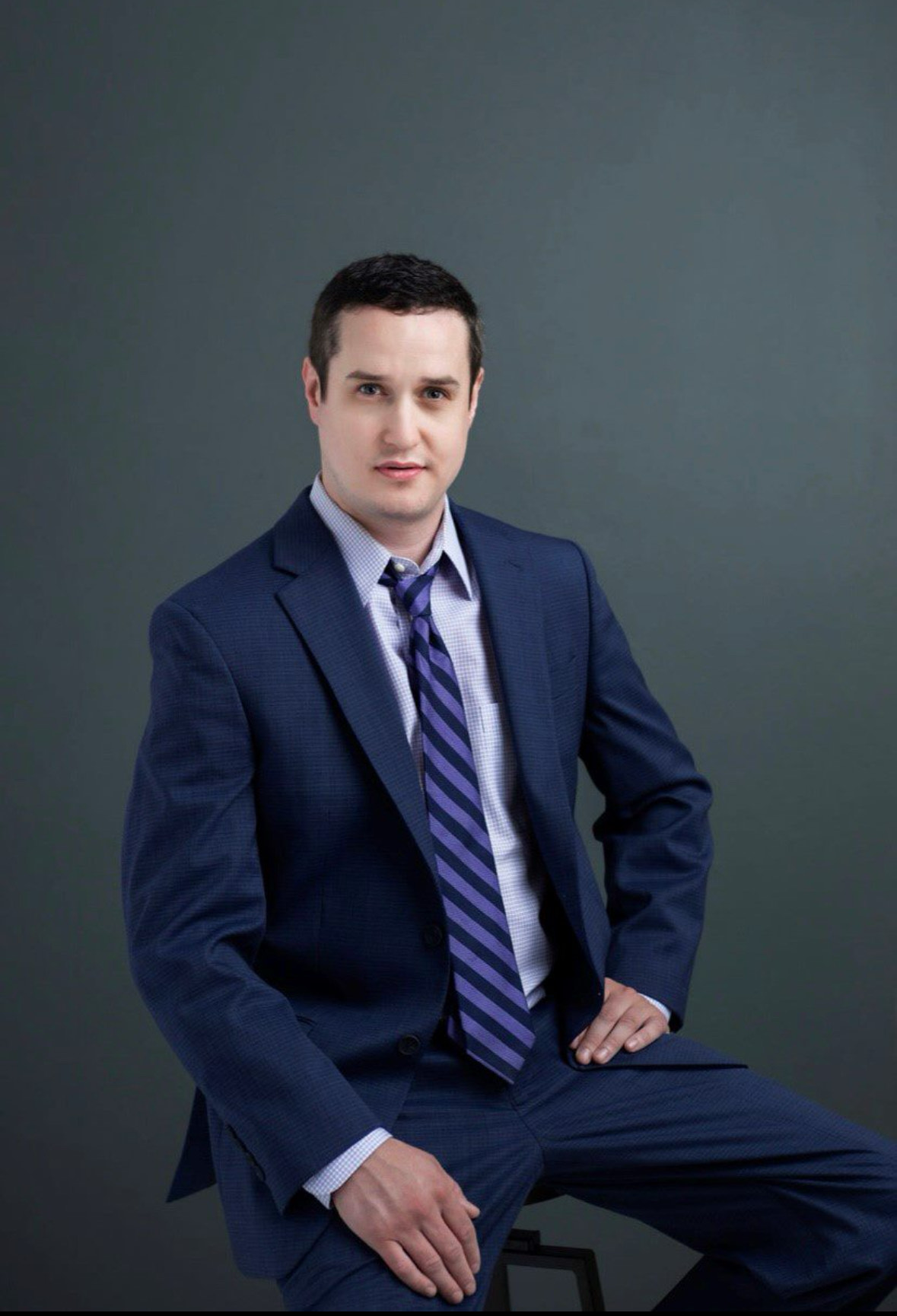
Q: Why did you decide to run for Pennsylvania Attorney General?
A: “Sure. Well, my campaign is based on, I think, a very different idea than the other candidates. All the other candidates have programs and ideas of what they’re going to do for the people, the committees they’re going to create, the laws they’re going to push forward, the actions that they’re going to do. I take a different approach. I believe that the people know best how to take care of themselves and decide for themselves. So my campaign is based on clearing the bureaucratic red tape and the overreach of government agencies and programs to allow people to interact with themselves and decide what’s best for them, where they live, and how to interact with each other. So I’m not here to do all of these things for the people. I’m here to clear the way for people to be able to do these things for themselves.”
Q: What job did you have before running for Attorney General? How will this experience help you if you get elected?
A: “Sure, yeah. So I’ve been a trial attorney in the criminal world, and then in civil and business litigation, so I’ve been in the courtroom pretty much across the board, during my career as an attorney. And I think that gives me a unique perspective that many of the other candidates don’t have. You know, most of them are either in one area of law or they’ve been in the administrative path most of their career. I’ve been on the ground trying cases, and that’s what the job of the Attorney General is, is to be the trial advocate for the state, for the people. So I think I have a unique offering in my trial and litigation experience.”
Q: What do you, your party and your platform stand for?
A: “Well, the Libertarian party’s base philosophy is founded on the idea of the non-Aggression Principle. This is the idea that it is never legitimate to initiate force against another person, and that’s both in the private realm and the political realm. So if a person can’t initiate force against someone else, neither can you use law to initiate force to make someone do something they would otherwise choose not to do. So the entire basis is a voluntary society where people choose to interact with each other, rather than being compelled through force of law.”
Q: If you do get elected into office, what is the first thing that you’re going to address?
A: “Well, the first thing that I would address is redefining what the role of government ought to be. This country was founded on the ideas of protecting individual liberty and not protecting the powers of government and the connectedness, so what I would focus on is corruption and exposing and opening the transparency of the actions of government officials. The law should be used to protect the privacy and property of the people, not the privacy and interests of government officials.”
Q: Why should 18-year-old high school students vote for you?
A: “I don’t think that they should. I don’t think that they should vote for any of them. My whole philosophy is based on local government. I think that communities have the best ability to decide what’s right for them, and the further up you go, the state level and the federal level, it just gets disconnected from the actual lives of the people who are being affected. So I don’t think that you should vote for any of us. I think that you should focus on local government and building community action and policies.”
Q: I want to pivot and address a lot of issues that are important nationally, but also important to our high school. What is your stance on taxes?
A: “That’s a pretty easy one. Taxation is a form of theft. If you were to go to your neighbor and say, ‘I’ve got this really great cause now give me your money. I want to go help somebody out with it.’ You couldn’t go and take it. But what taxes do is use the force of government and at the point of a policeman’s gun to say that we get to take from you to give to somebody else, even if it’s for the best cause. It’s not, within the ideas of liberty and our first principles to compel people by violence to do something they wouldn’t otherwise do, taxes. If it’s not right for an individual to do, it’s not right for the government to do.”
Q: I have a follow-up question to that. So the government is collecting money to pay for governmentally-funded programs through taxes, whether you agree with that or not. Where would that extra money then come from to fund things like public education and other social services that are important to the people that are now paid for by government taxes?
A: “Well, public education doesn’t seem to be serving our students all that well, particularly those in the most need. The numbers seem to show that we have the lowest reading comprehension rates, and students are coming out of school unprepared and ill-equipped for the world ahead of them. It isn’t that because we don’t want the government to do it, that we don’t want it to happen. What we would like to see is the money returning to communities and people being able to use that and funding their local schools, and having choices and options of what’s right for them in their communities.”
Q: Going along with education, if, as you said, each community will privatize schools and develop, how are you going to ensure that when the students graduate statewide, they’re all on a similar knowledge level, so that they can become competitive citizens in the free market?
A: “Well, I don’t think that our schools are preparing students. I don’t mean this–as cheeky as it might sound— but if students were working rather than going to school, they would probably be more prepared. If we had apprenticeships and internships, we would learn applicable skills. I think that our young people would be much more prepared. We have people coming out at the age of 18, really, they don’t know how to get started, and then they are forced into $100,000 education through college and end up coming out and working a bar. So the whole education system seems to be failing our students and making them bound by debt to the system, and it doesn’t seem to be working. So I would say that maybe we need to rethink how education is actually done in the first place, and maybe return to our trade-based and apprenticeship education might serve us a little better.”
Q: So you would prefer, instead of students sitting in a class and learning about something, that they go out and actually do things and learn through that way?
A: “Yeah, yeah, real world applicable. You know, you learn a lot more working an internship than you do sitting in a classroom.”
Q: I would like to turn to the economy and inflation. If you do get elected to the Attorney General position, what are you going to do about that?
A: “As Attorney General, that’s a difficult issue to tackle, because if you want to address inflation, you have to understand where it comes from in the first place, and inflation is caused by the printing of money and inflating the money supply, which devalues the dollar. There’s a lot of attempted explanations to claim why different businesses or different factors are causing the inflation, but this is something that we used to know very clearly. Inflation is when you increase the money supply. So as Attorney General, you know there wouldn’t really be anything that you can do about the Federal Reserve printing more money, unless we get spending and the printing of the money under control, the prices are always going to continue to increase. So as Attorney General, I would like to prevent as much government wasteful spending as I can. I can prevent this through going after corruption in the government. But you need to understand that inflation is caused by the printing of money and increasing the money supply, which devalues the dollar.”
Q: I realize that this might not pertain so much to the Attorney General position, as you just said, but in an ideal world, how would you like the economy to work in the state, but also nationally?
A: “We hear the phrase a lot that America is the greatest country in the world, but we don’t ever really talk about how it got that way and how we’ve kind of lost that edge. We were founded on the principles of free markets and voluntary economic activity, no regulation, no interference. What regulation does is it puts barriers in the way of doing business, which increases the cost of doing business, and that prevents American industries from being able to compete in the worldwide marketplace. The more regulation and the more you interfere with the free market, the more you’re going to increase cost and prevent American industry from being able to compete. So, until we roll back the huge experiment of the 20th century of ever-increasing regulation, we’re never going to release this stranglehold on the economy to be able to thrive the way that it used to and the way that it made this country the greatest country in the world.”
Q: I want to turn to the environment, climate change and issues like that. So with less government regulation, as you said, how will you combat climate change and ensure that people have clean air and water when corporation emissions, for example, aren’t regulated anymore by the federal government?
A: “Well, we’ve got endless regulations for environmental purposes that have piled on over the last about 100 years, and it doesn’t seem to be effective. In fact, a lot of the time, what seems to happen is the regulations are written by the companies who are the biggest polluters. They give them license to be the only polluter, or they limit how much you’re allowed to pollute before you actually have any liability. So it actually takes away the responsibility from where the companies should be. All we need to do is protect property rights at the fundamental level. If you’re polluting, we need to be able to have access to the courts to hold polluters accountable. For the regulations, the regulations allow certain people to do bad things and escape liability. So if we just understand how to protect property rights and allow access to the courts if somebody is harmed, including the water or the airways, that would be the right way to regulate it.”
Q: What are your thoughts on abortion?
A: “Well, my personal stance is I’m pro-choice, but I think that we’ve been led very astray on this issue. It’s probably the most difficult issue to tackle at a government level, and that is because there are legitimate reasons on both sides for why they hold the positions that they hold, until we understand that this is something that is incompatible. Depending on what your worldview is, we’re never going to be able to find the right answer to it. So if you believe that a soul is put into this little being at the moment of conception, then you’re never going to be able to hold any other position than pro-life. You’re never going to be able to accept anything other than that. But if you don’t, if you believe that this is a part of a woman’s body, then you’re never going to be able to accept that this isn’t a right, that she doesn’t get control. So I think the best solution is to not just put the [issue] with states, but even at a more local level, allow the different counties to choose if they want to have legal abortion or not. You know, in Pennsylvania, we have a unique situation. We’ve got the two major blue cities on either side, and the rest of the state is very red. So Philadelphia and Pittsburgh are very dominantly pro-choice, and most of the rest of the state is pro-life. Why should Philadelphia and Pittsburgh tell Mingo County what they should allow in there, around them? Why not let the counties choose what they want to have and stop fighting this? Because this is an incompatible issue. We’ll never be able to agree and try to keep fighting on it. We’re always going to have a loser. So I think this is a time where we have to live and let live. Have it the way that you want it, where you are, and allow other people to do what they want somewhere else. Otherwise we’re going to fight over this.”
Q: What are your thoughts on the First and Second Amendments and gun control?
A: “Well, so a statement order, the First Amendment is the most crucial right of a free people. If you don’t have the right to speak, you don’t have the right to think, and the solution for bad speech is not to reduce it, or have less speech. It’s more speech, it’s good ideas to combat bad ideas. So a free society is fundamentally based on the ability to speak, because it’s your ability to think, it’s how we bring about the good ideas and identify the bad ideas. If you don’t have free speech, you don’t have a free society. So I think that’s number one. The Second Amendment is going back to the foundation of what the Libertarian philosophy is, built on the non-Aggression Principle. If it’s illegitimate to initiate force and it’s only legitimate to use force in defense, then it’s easy to understand why everybody should have the right to defend themselves to the fullest extent. The Second Amendment is how you keep all of the rest of the other rights. It is how you keep the overreach of the law at bay. It’s how you avoid 50% telling everybody else what to do. It’s absolutely necessary to be able to defend yourself and to defend yourself against your own government, if it comes down to it. That’s how we were founded. We rebelled against the British Crown by being able to defend ourselves. And sometimes we need to hold our government accountable.”
Q: My next question is about school security, in the context of how many school shootings have been going on. We actually had a shooting hoax about two years ago where we had SWAT teams running into the school, and we didn’t know at the time that it was real. So how are you going to act on this issue?
A: “The phenomenon of school shootings is, well, clearly one of the most tragic things we have going, but the issue isn’t guns. The issue is clearly mental health. We don’t have a healthy understanding of mental health. We don’t have parents involved. We have information being withheld from parents. We don’t promote healthy, physical and mental well-being in our country, and I think we’re feeding into the dilemma that is causing school shootings. If you take away the guns, you’re still going to have kids who are so either hurt or there’s something so wrong that they want to kill somebody. The issue isn’t the guns. The issue is, why? Why do we have this epidemic of kids who want to go to this level? So I think this is a mental health issue. I don’t think guns have anything to do with it. If you took them away, I think we’ll have a different avenue for this to be exploited. So I think we need to take a serious look at how we understand mental health and how to help and identify people who might get to that point.”
Q: And as Attorney General, if you get elected, what specifically are you going to do to improve mental health in schools?
A: “Well, that’s a difficult question. I think that the cause is rooted in a disregard and a disintegration of the family and the family participation in kids’ lives. I don’t know what an Attorney General can really do about that. We’ve been told that we can send our kids to school and they’ll be looking out for them. We can send them to daycare. We can send them wherever we need, and somebody will be looking after them, preventing them from feeling really neglected and not being taken care of. I don’t know what an Attorney General can do about that. We need to have a societal change in view about what the role of family is and are obligations to each other.”
Q: What about gender identity and the LGBTQ+ community? Could you address that and how it ties into the Attorney General position?
A: “Well, I take a very, very basic approach to rights. Rights don’t come from an identity or a group mentality. Rights come from your humanity as an individual. So there are no group rights, there are only individual rights, and if we have that understanding, then we can afford everyone the greatest extent of their individual rights. You don’t need gay rights or women’s rights or black rights, if you have individual rights, if you see each other, it’s an individual and everybody gets the fullest extent. There is nowhere to discriminate upon. So I think you understand what rights are, that they come from our humanity and not from a group identity.”
Q: I also want to return to education, cost and post-secondary education. I read through your party platform, and in section 2.12 it states that you “would restore authority to parents to determine the education of their children without interference from government.” You also kind of touched on this. Currently, Child Protective Services intervenes if parents are unable to take care of their children. How will you ensure that parents will take good care of their kids and provide them an education so that they will become competitive citizens in the free market?
A: “Well, again, I think that this comes back to: where does this issue stem from? And again, I think it’s from disintegration of the family, disintegration of personal responsibility. I think this is heavily fed by unintended consequences of the welfare system, which subsidizes single parenthood, which is the biggest factor in the predictable outcome of the success of a child. And there’s two parents or one. When you pay for a person to be single, you’re going to get more of it. So instead of our women marrying men and having a family and being committed and having that be the basis, we’re having our women marry the government, and they’re getting all the benefits, or, I would say, burden. These things that they come back to, rooted in the importance of family foundations and responsibility.”
Q: What about energy and transportation in Pennsylvania? What measures would you take for that, if you get elected, to improve public transportation and things like that?
A: “Sure. Well, I think that that comes back to my basic look at the way that these things should be run in the first place. When you do something through the government, you add a bunch of bureaucracy on top. You take value away from it just to run the system, and then you get a worse off product at a higher price. So I think that these things should be done based on need. If there’s a need in the market, when you interfere, you increase the cost, you decrease the quality. And so if it’s going to be done, it should be done at the local level, if anywhere, but privatizing as much and turning it to the free market will find the best ways for it to be done. When you do it through the government, you do it one way, whether it’s the best way or not. When you do it in the market, you allow the best ideas to arise at the top, and that typically is how we get lower costs and more availability of resources.”



